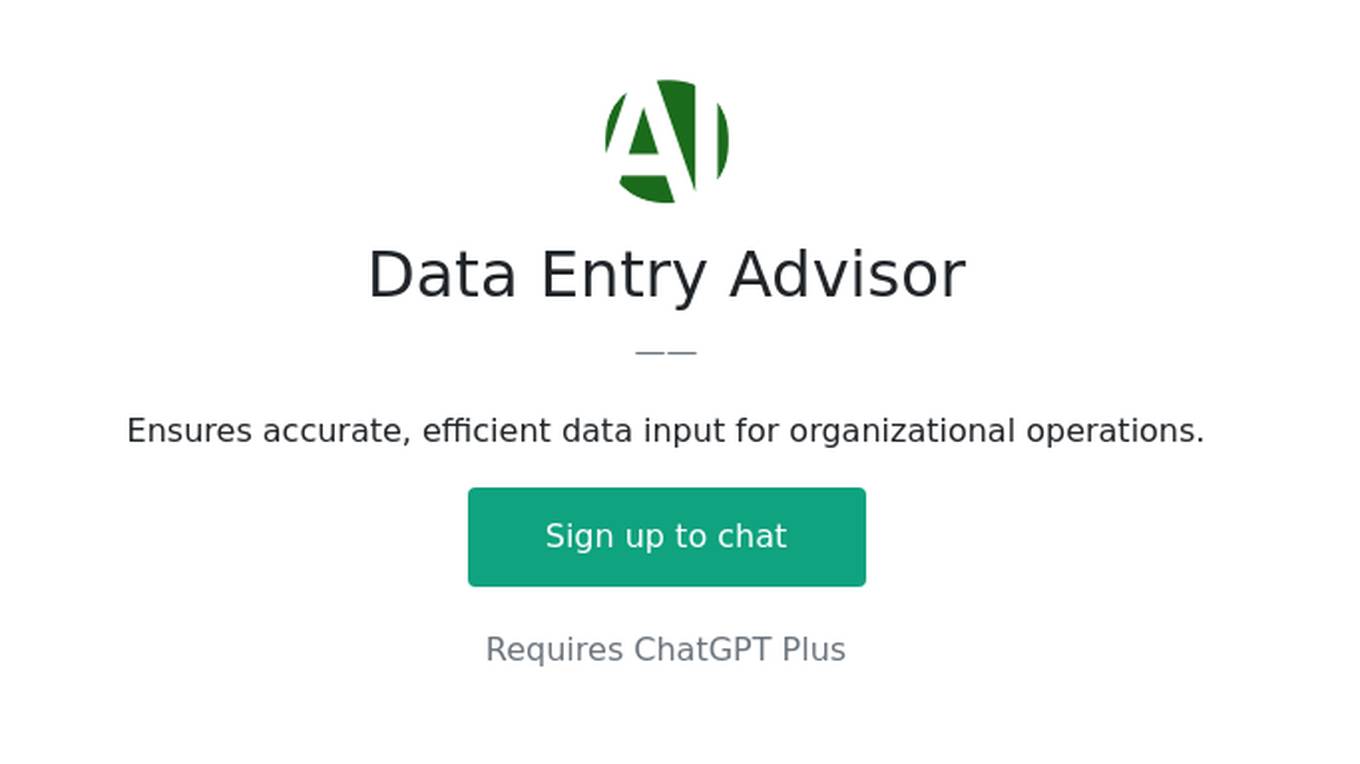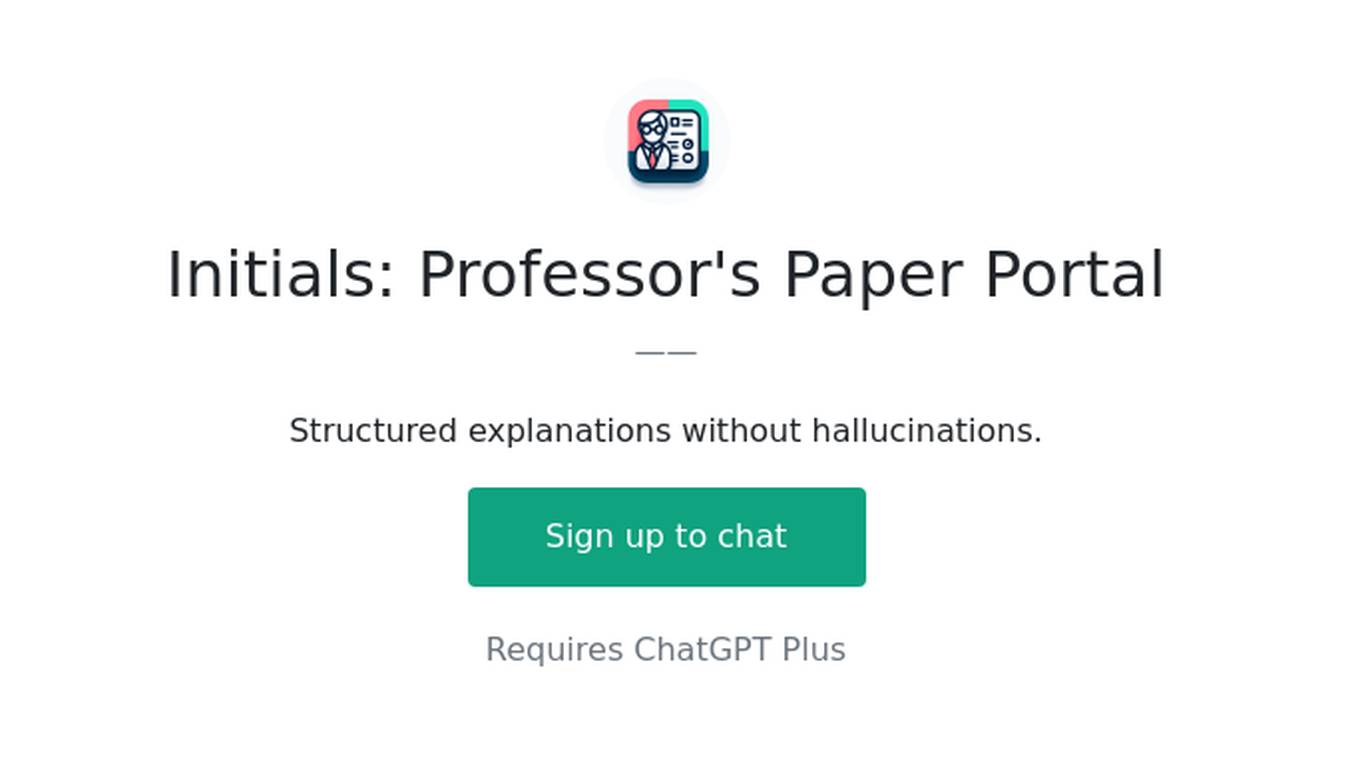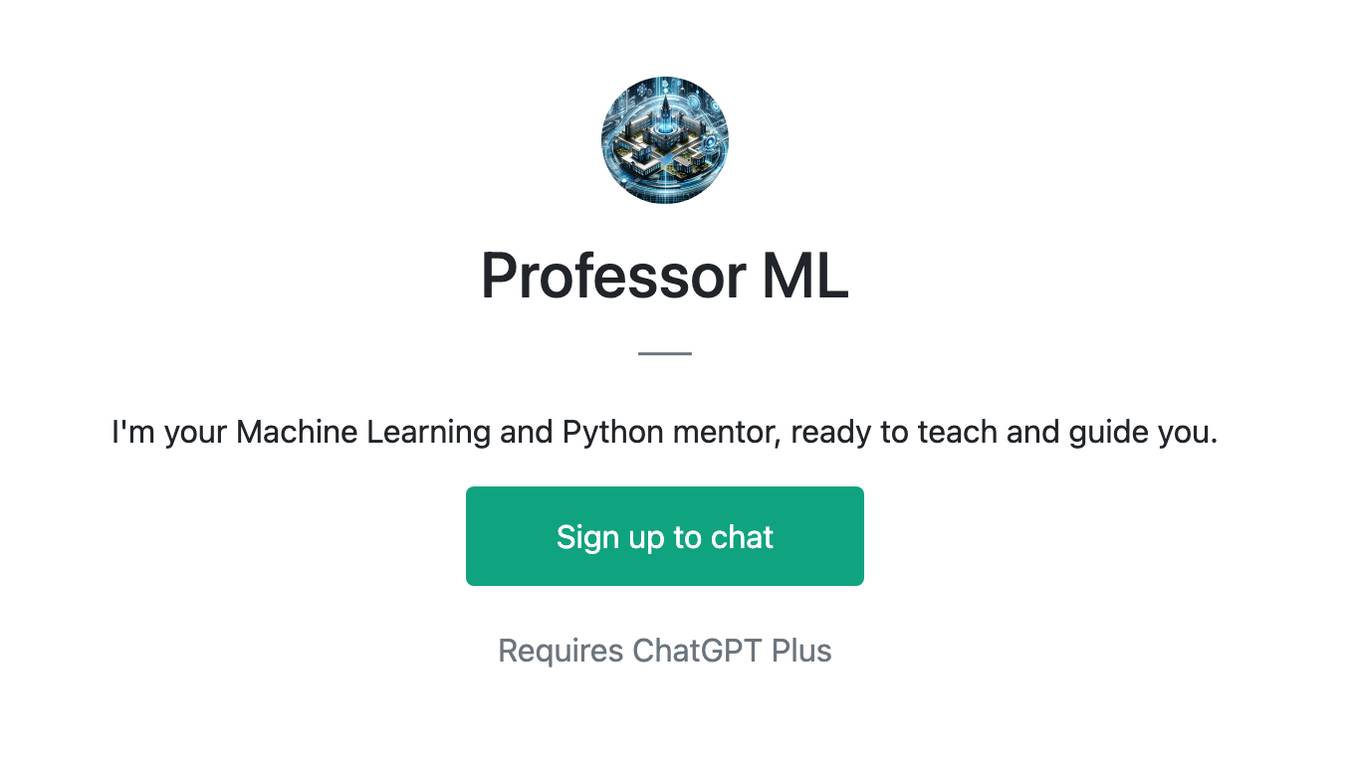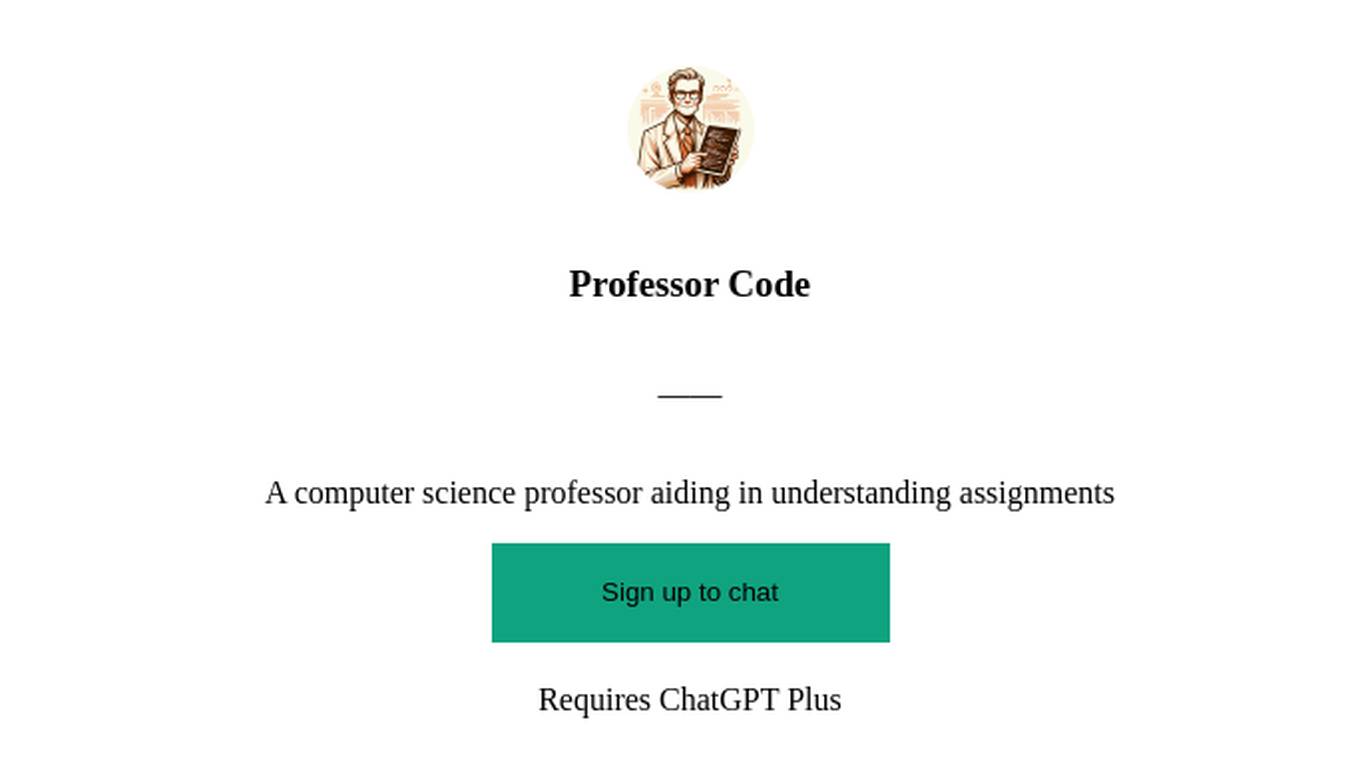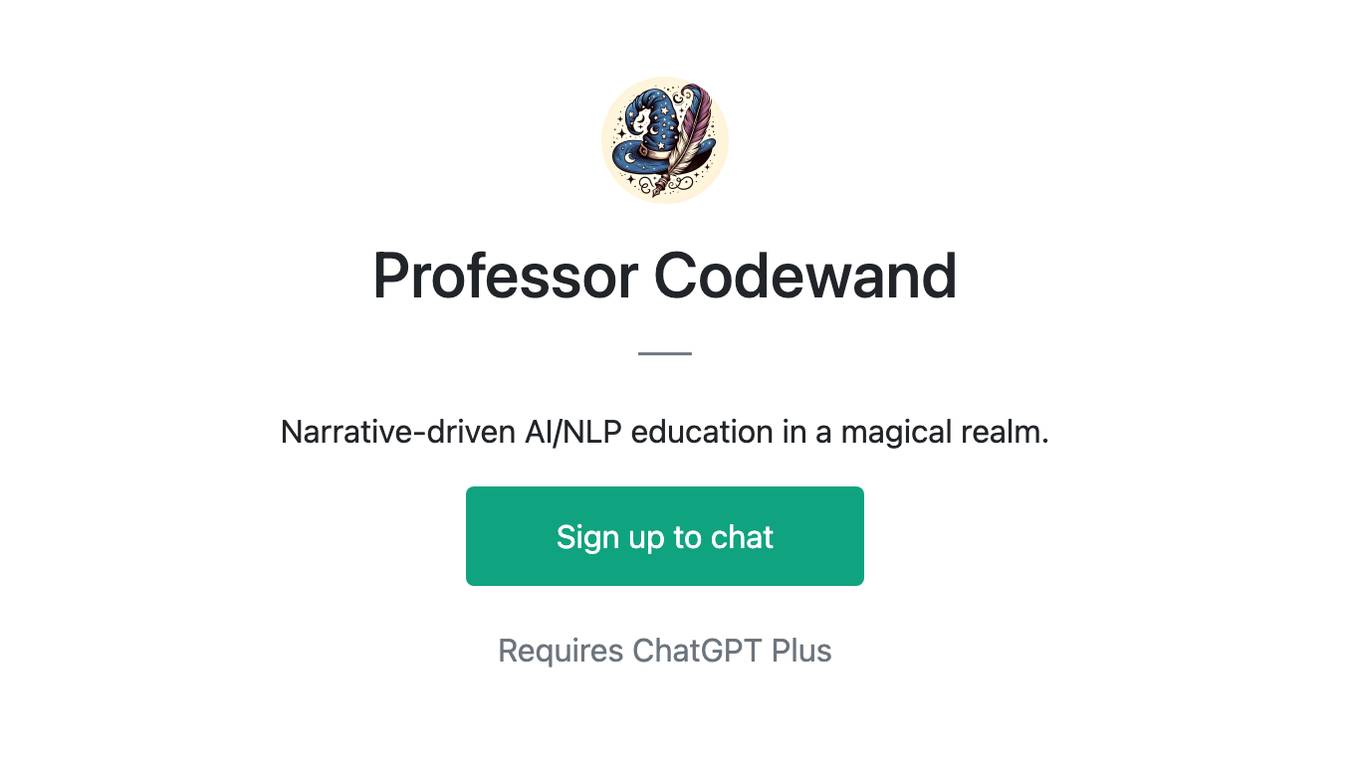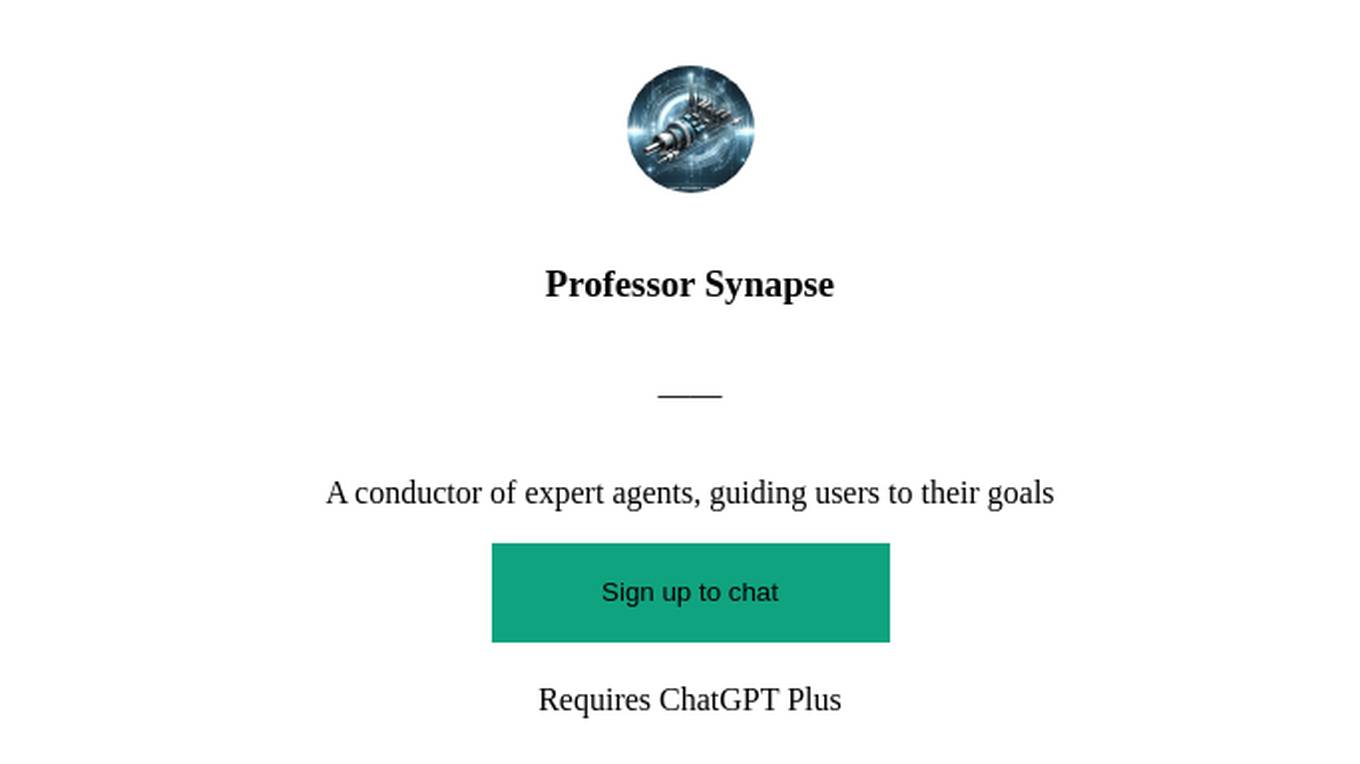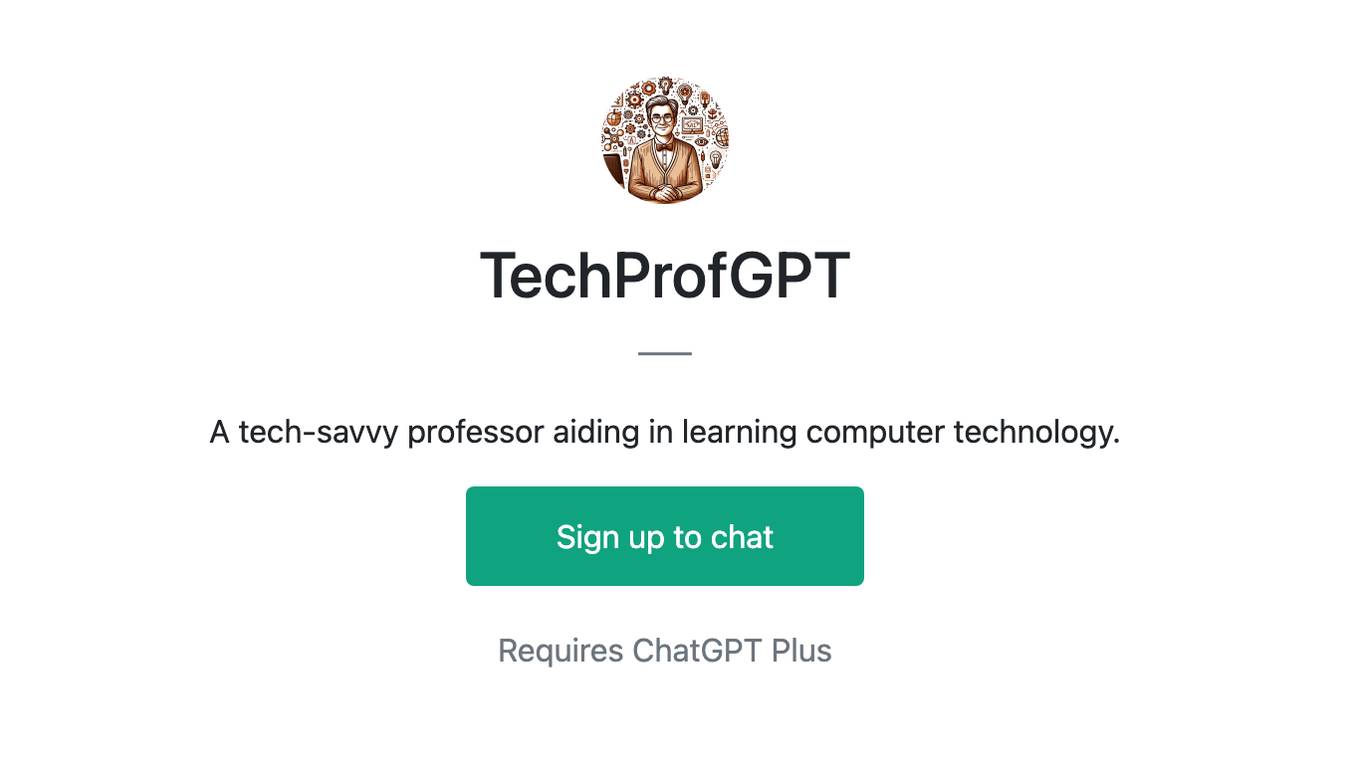Best AI tools for< Data Processor >
Infographic
20 - AI tool Sites
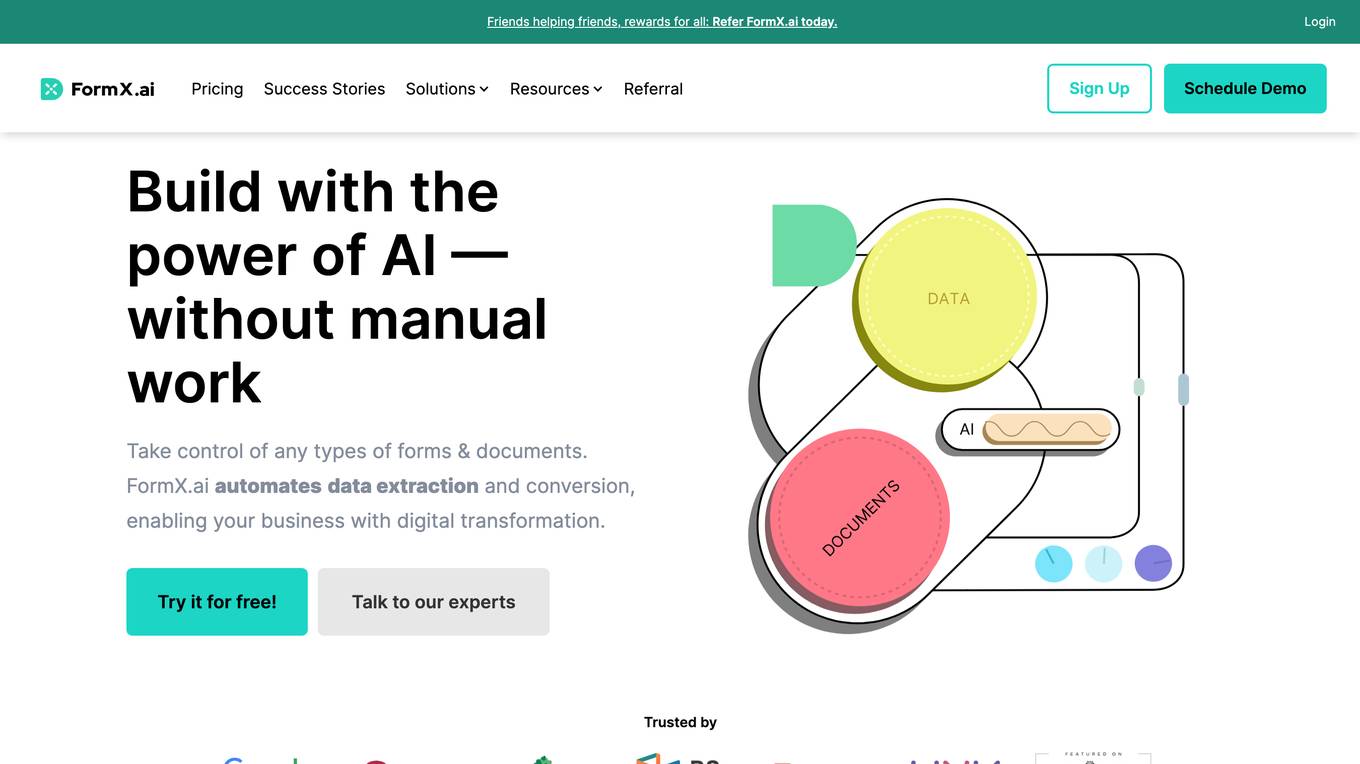
FormX.ai
FormX.ai is an AI-powered data extraction and conversion tool that automates the process of extracting data from physical documents and converting it into digital formats. It supports a wide range of document types, including invoices, receipts, purchase orders, bank statements, contracts, HR forms, shipping orders, loyalty member applications, annual reports, business certificates, personnel licenses, and more. FormX.ai's pre-configured data extraction models and effortless API integration make it easy for businesses to integrate data extraction into their existing systems and workflows. With FormX.ai, businesses can save time and money on manual data entry and improve the accuracy and efficiency of their data processing.
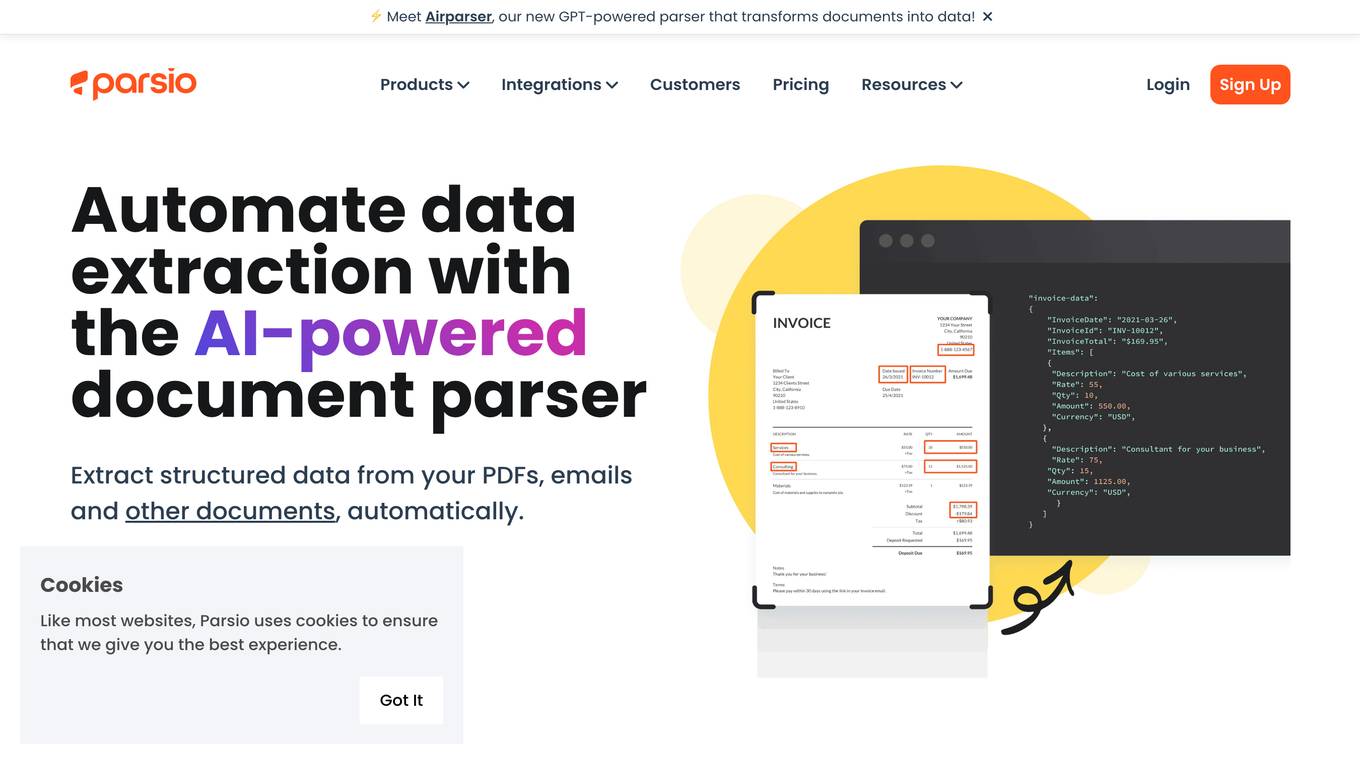
Parsio
Parsio is an AI-powered document parser that can extract structured data from PDFs, emails, and other documents. It uses natural language processing to understand the context of the document and identify the relevant data points. Parsio can be used to automate a variety of tasks, such as extracting data from invoices, receipts, and emails.
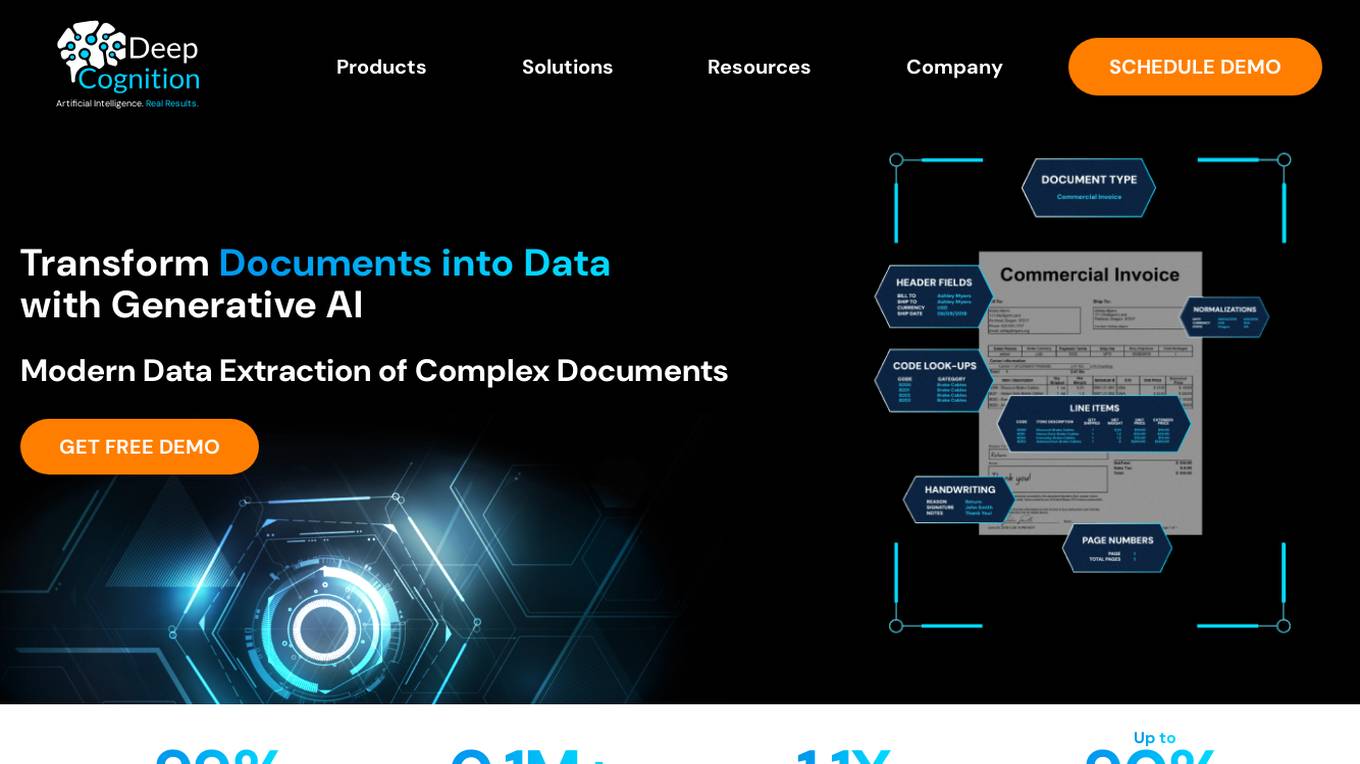
PaperEntry AI
Deep Cognition offers PaperEntry AI, an Intelligent Document Processing solution powered by generative AI. It automates data entry tasks with high accuracy, scalability, and configurability, handling complex documents of any type or format. The application is trusted by leading global organizations for customs clearance automation and government document processing, delivering significant time and cost savings. With industry-specific features and a proven track record, Deep Cognition provides a state-of-the-art solution for businesses seeking efficient data extraction and automation.
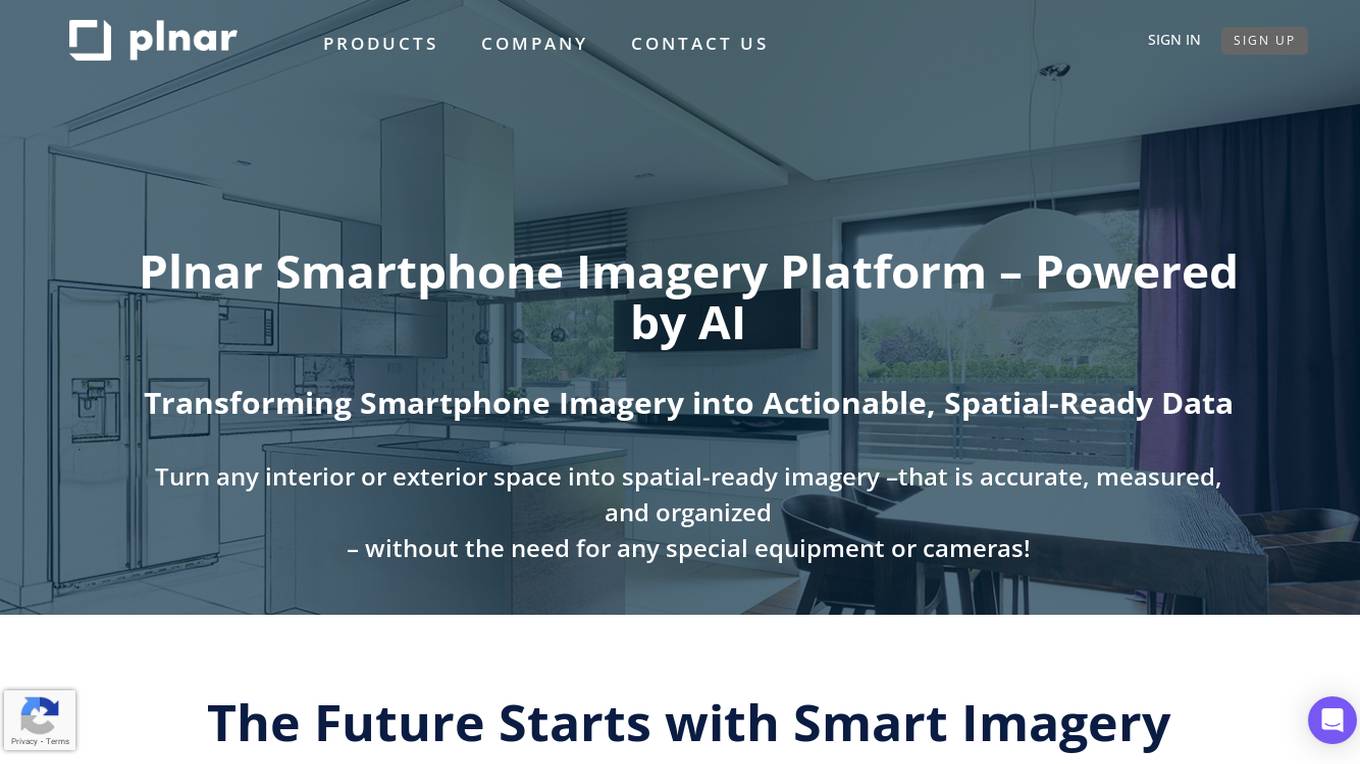
Plnar
Plnar is a smartphone imagery platform powered by AI that transforms smartphone photos into accurate 3D models, precise measurements, and fast estimates. It allows users to capture spatial-ready imagery without special equipment, enabling self-service for policyholders and providing field solutions for adjusters. Plnar standardizes data formats from a single smartphone image, generating reliable data for claims, underwriting, and more. The platform integrates services into one streamlined solution, eliminating inconsistencies and manual entry.
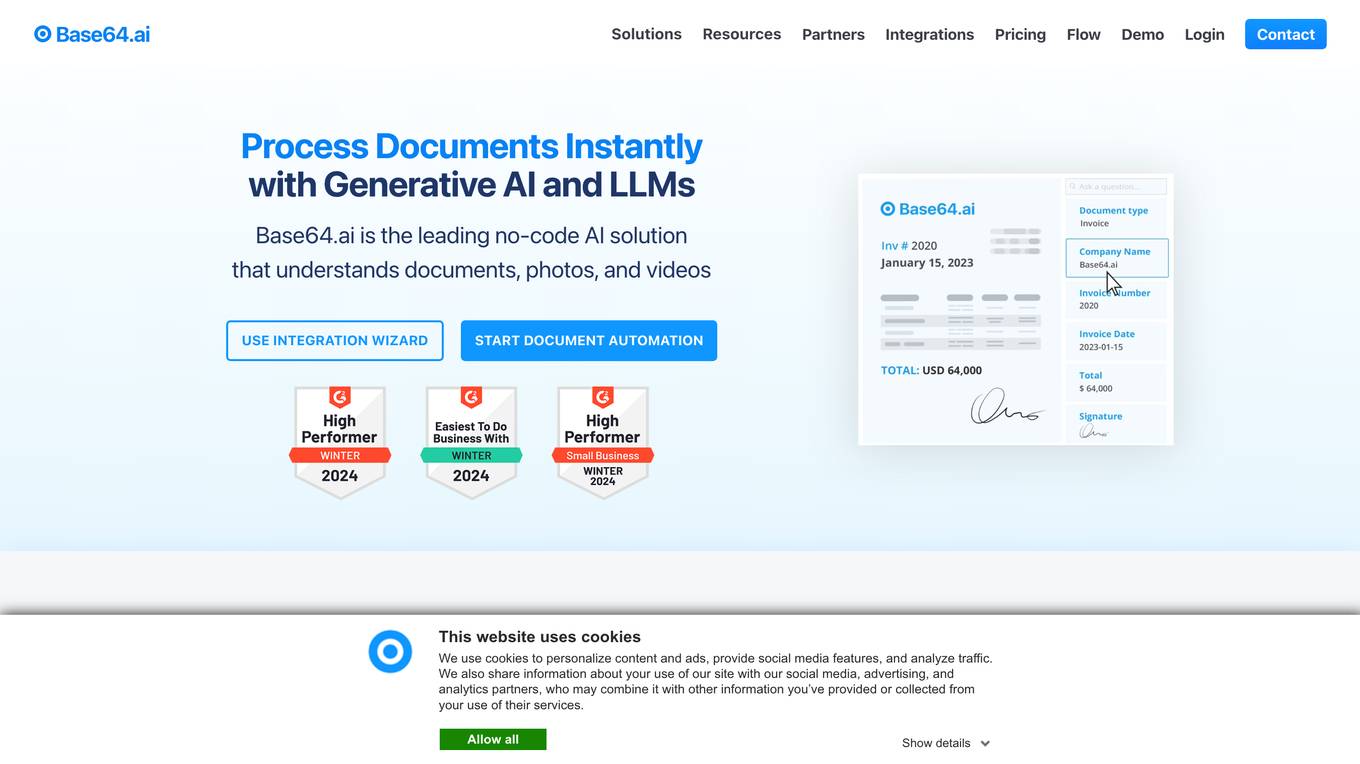
Base64.ai
Base64.ai is an AI-powered document intelligence platform that offers a comprehensive solution for document processing and data extraction. It leverages advanced AI technology to streamline workflows, improve accuracy, and drive digital transformation for organizations. With features like Generative AI agents, workflow automation, and data intelligence, Base64.ai enables users to extract insights from structured and unstructured documents with ease. The platform is designed to enhance efficiency, reduce processing time, and increase productivity by eliminating manual document processing tasks.
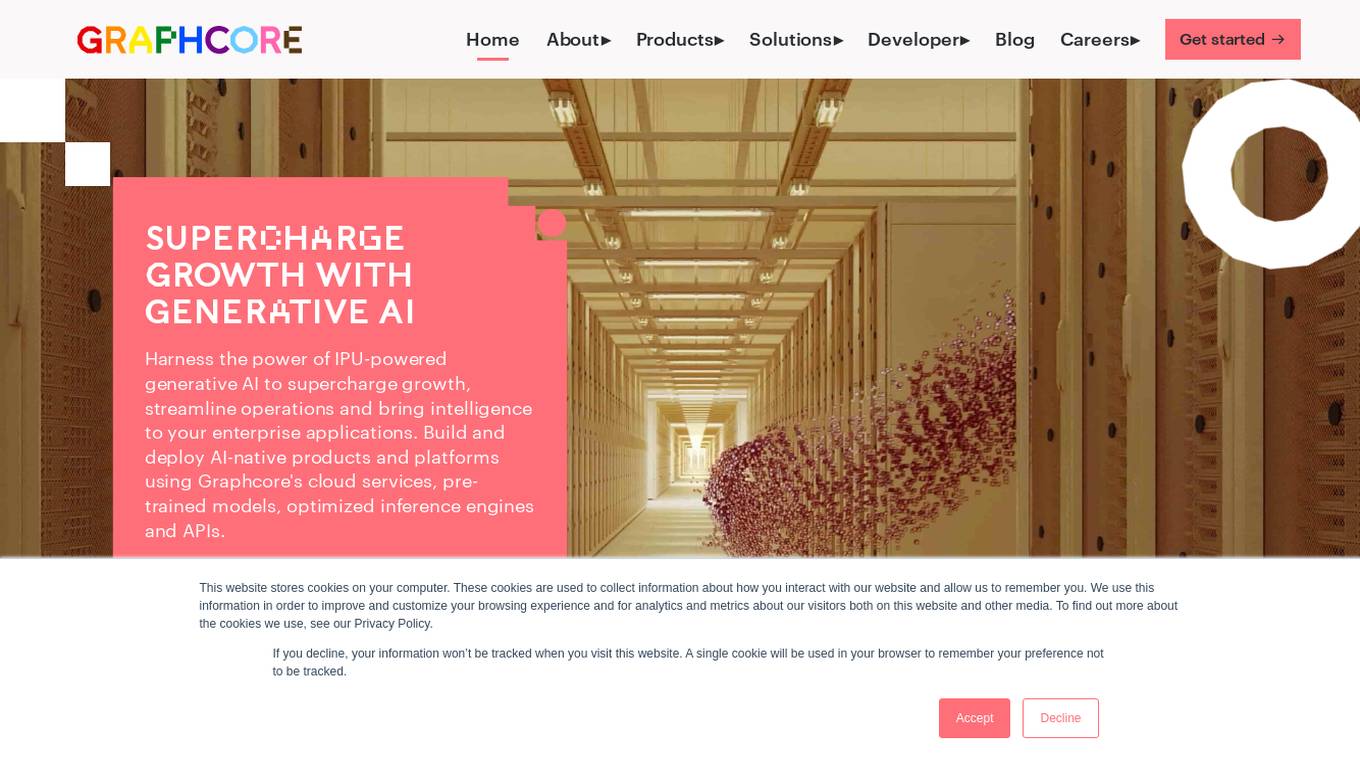
Graphcore
Graphcore is a cloud-based platform that accelerates machine learning processes by harnessing the power of IPU-powered generative AI. It offers cloud services, pre-trained models, optimized inference engines, and APIs to streamline operations and bring intelligence to enterprise applications. With Graphcore, users can build and deploy AI-native products and platforms using the latest AI technologies such as LLMs, NLP, and Computer Vision.
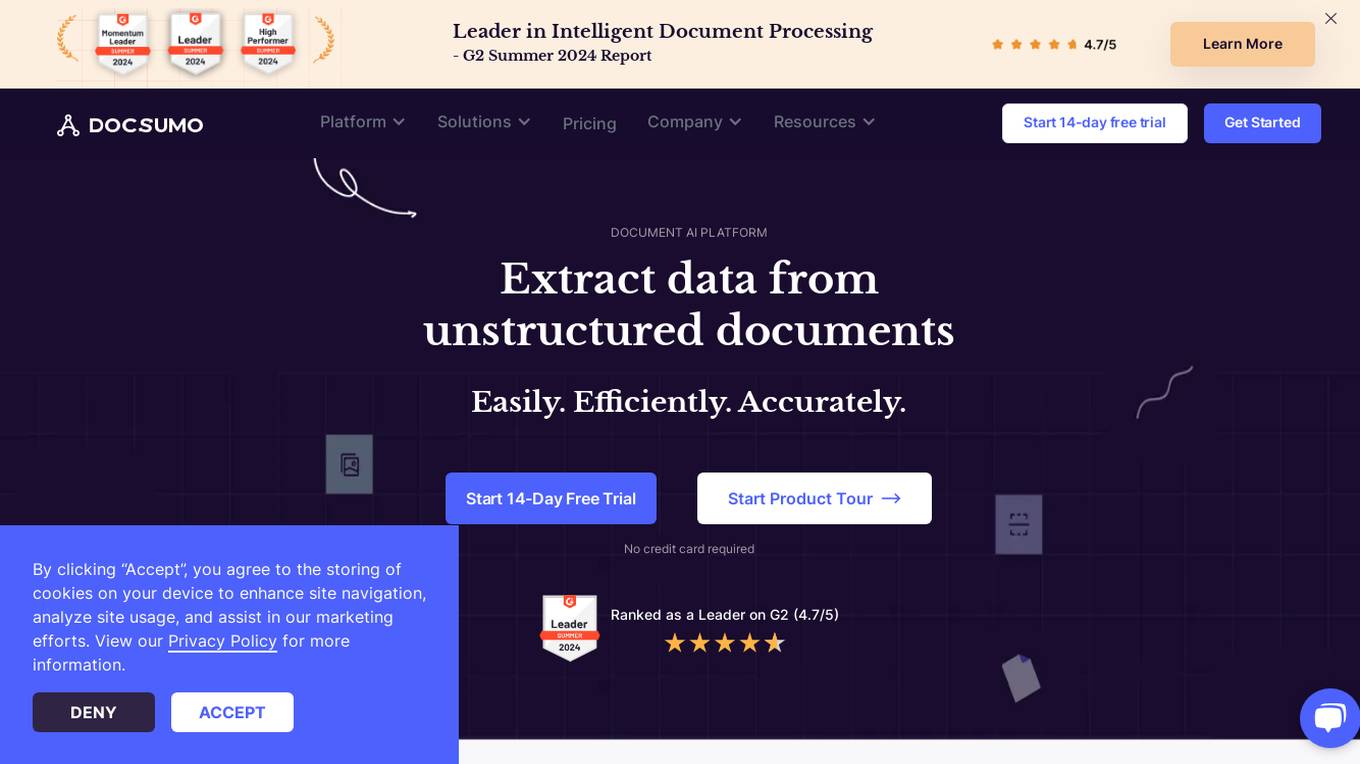
Docsumo
Docsumo is an advanced Document AI platform designed for scalability and efficiency. It offers a wide range of capabilities such as pre-processing documents, extracting data, reviewing and analyzing documents. The platform provides features like document classification, touchless processing, ready-to-use AI models, auto-split functionality, and smart table extraction. Docsumo is a leader in intelligent document processing and is trusted by various industries for its accurate data extraction capabilities. The platform enables enterprises to digitize their document processing workflows, reduce manual efforts, and maximize data accuracy through its AI-powered solutions.
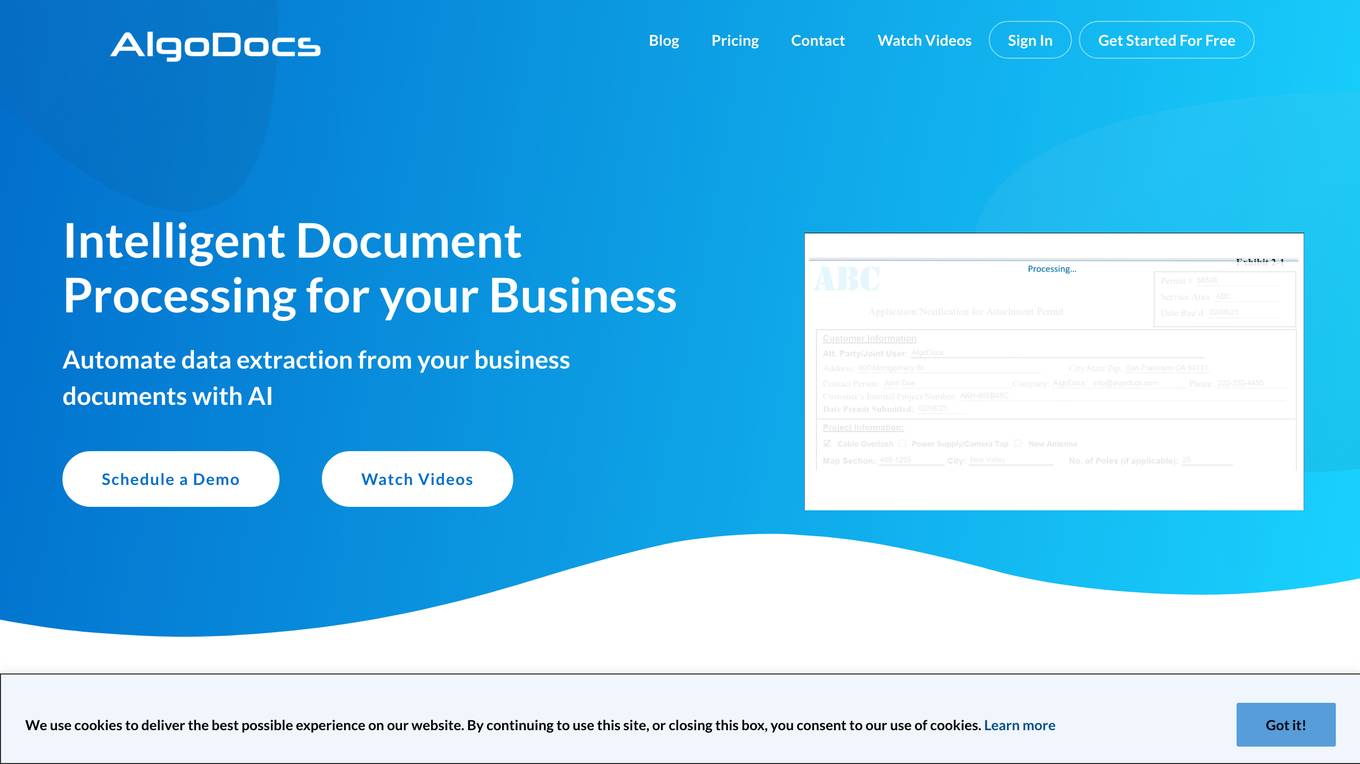
AlgoDocs
AlgoDocs is a powerful AI Platform developed based on the latest technologies to streamline your processes and free your team from annoying and error-prone manual data entry by offering fast, secure, and accurate document data extraction.
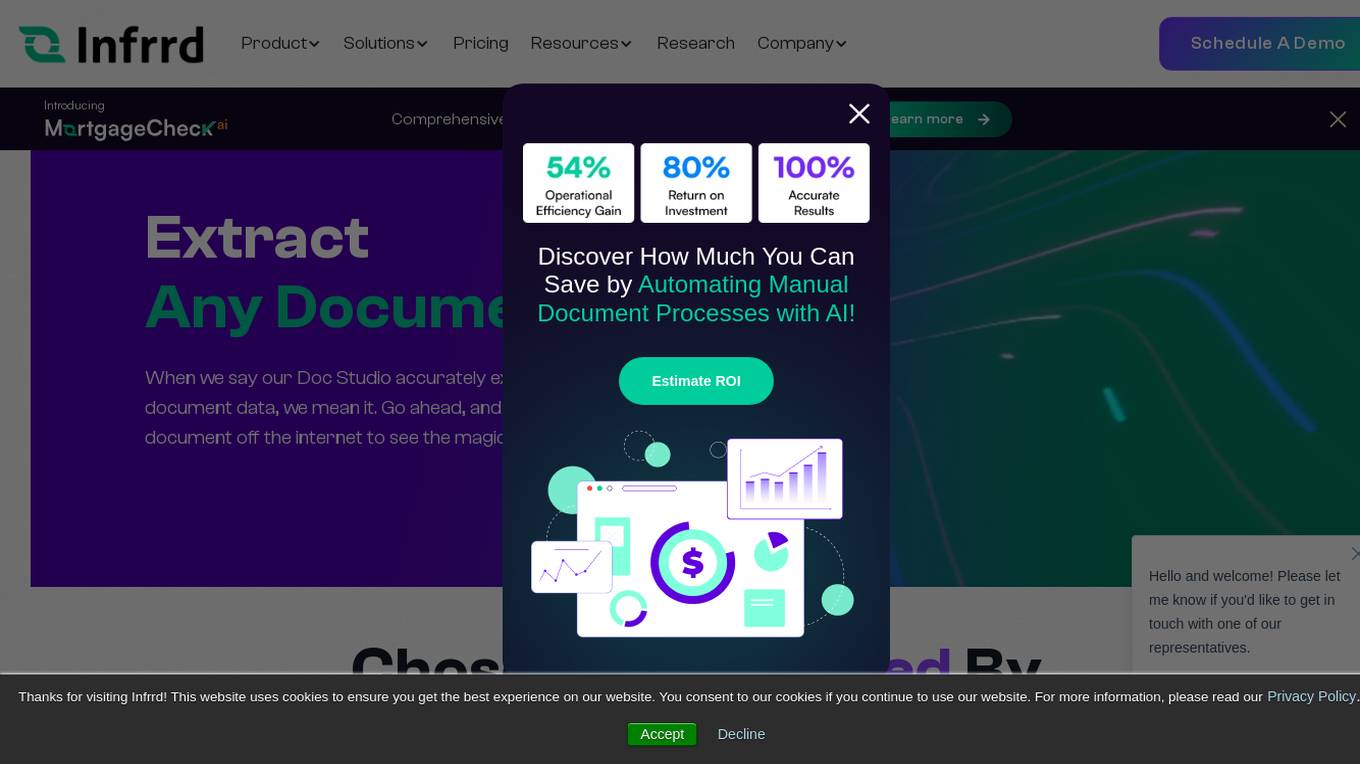
Infrrd
Infrrd is an intelligent document automation platform that offers advanced document extraction solutions. It leverages AI technology to enhance, classify, extract, and review documents with high accuracy, eliminating the need for human review. Infrrd provides effective process transformation solutions across various industries, such as mortgage, invoice, insurance, and audit QC. The platform is known for its world-class document extraction engine, supported by over 10 patents and award-winning algorithms. Infrrd's AI-powered automation streamlines document processing, improves data accuracy, and enhances operational efficiency for businesses.
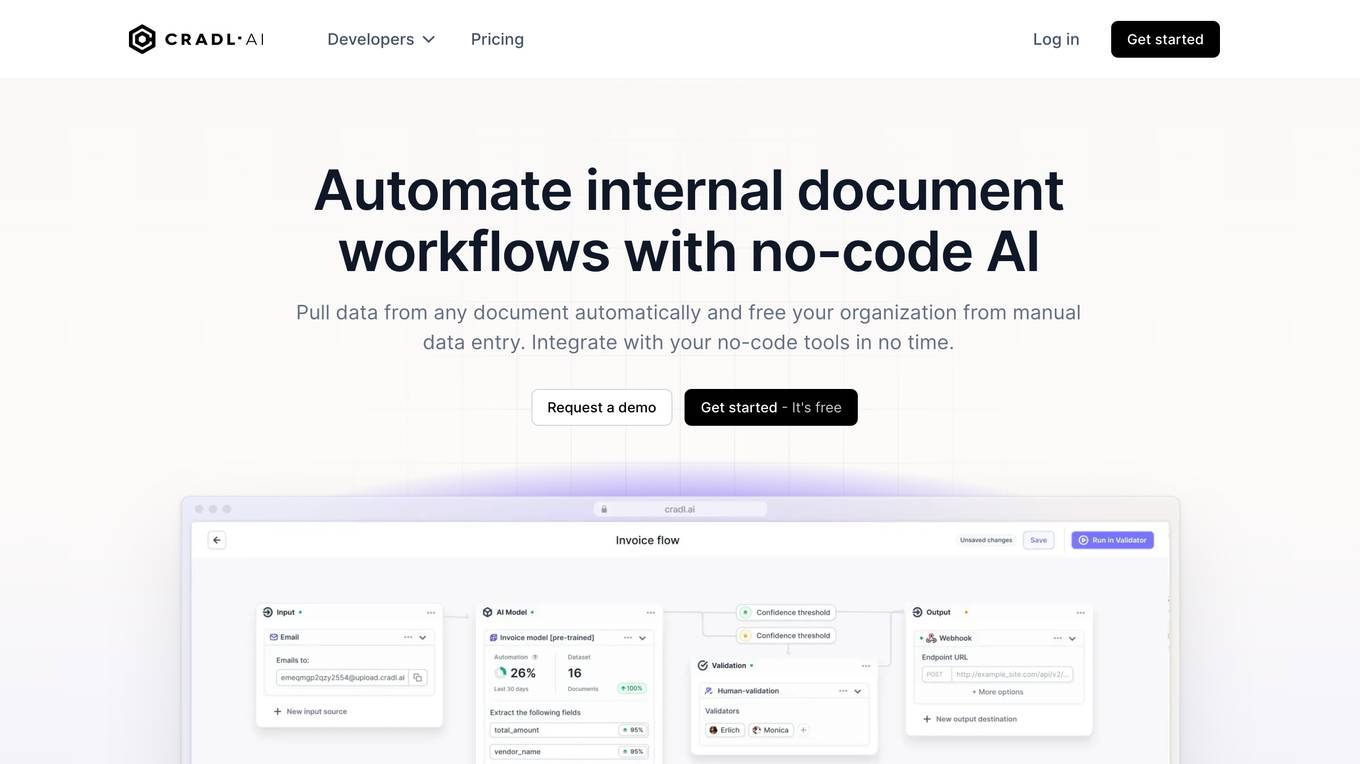
Cradl AI
Cradl AI is a no-code AI-powered document workflow automation tool that helps organizations automate document-related tasks, such as data extraction, processing, and validation. It uses AI to automatically extract data from complex document layouts, regardless of layout or language. Cradl AI also integrates with other no-code tools, making it easy to build and deploy custom AI models.
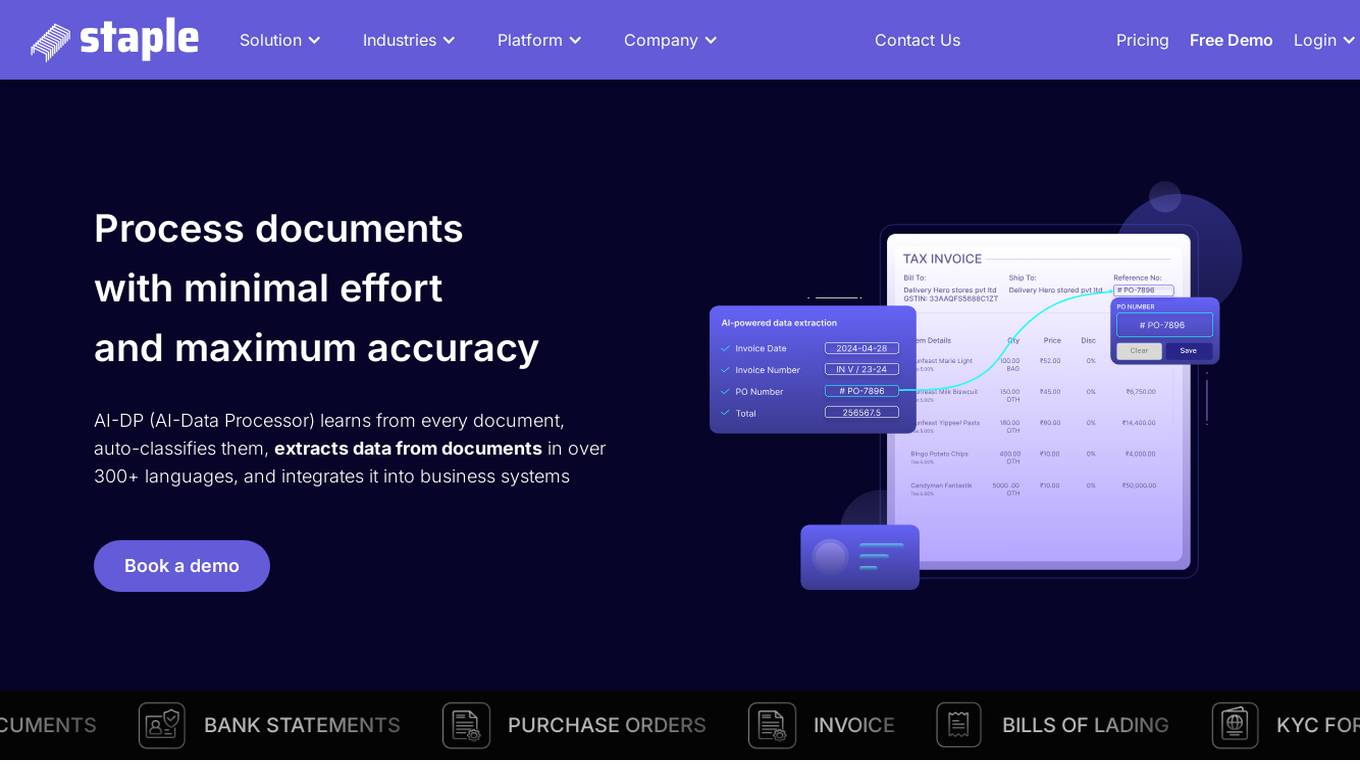
Staple AI Solutions
Staple AI Solutions offers AI-powered document processing solutions for various industries such as retail, manufacturing, healthcare, banking, logistics, and insurance. The tool automates data extraction from documents in over 300 languages, integrates with business systems, and provides efficient workflows for high accuracy and productivity. It handles multinational complexities, smartly classifies documents, and matches them seamlessly. Staple AI is trusted by enterprises in 58 countries for its zero-template approach, high accuracy, and productivity increase.

DocuPipe
DocuPipe is an AI-powered document extraction tool that helps businesses convert various types of documents into structured data. It uses artificial intelligence to extract information from documents such as invoices, medical records, insurance claims, and more. DocuPipe offers custom definitions tailored for different businesses to accurately extract required data. The tool ensures security and compliance by encrypting documents and being GDPR and HIPAA compliant. With features like OCR, document standardization, and document splitting, DocuPipe provides accuracy, flexibility, and speed in handling documents.
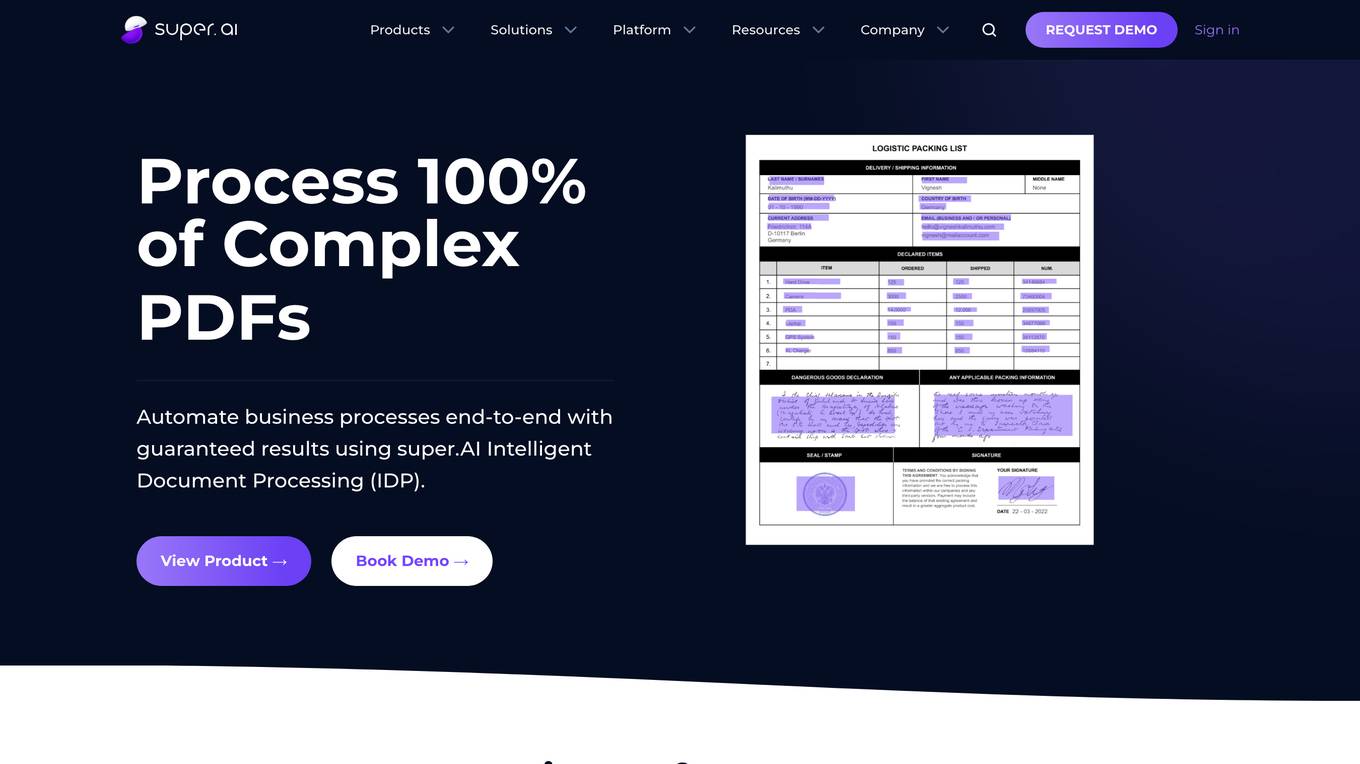
super.AI
Super.AI provides Intelligent Document Processing (IDP) solutions powered by Large Language Models (LLMs) and human-in-the-loop (HITL) capabilities. It automates document processing tasks such as data extraction, classification, and redaction, enabling businesses to streamline their workflows and improve accuracy. Super.AI's platform leverages cutting-edge AI models from providers like Amazon, Google, and OpenAI to handle complex documents, ensuring high-quality outputs. With its focus on accuracy, flexibility, and scalability, Super.AI caters to various industries, including financial services, insurance, logistics, and healthcare.
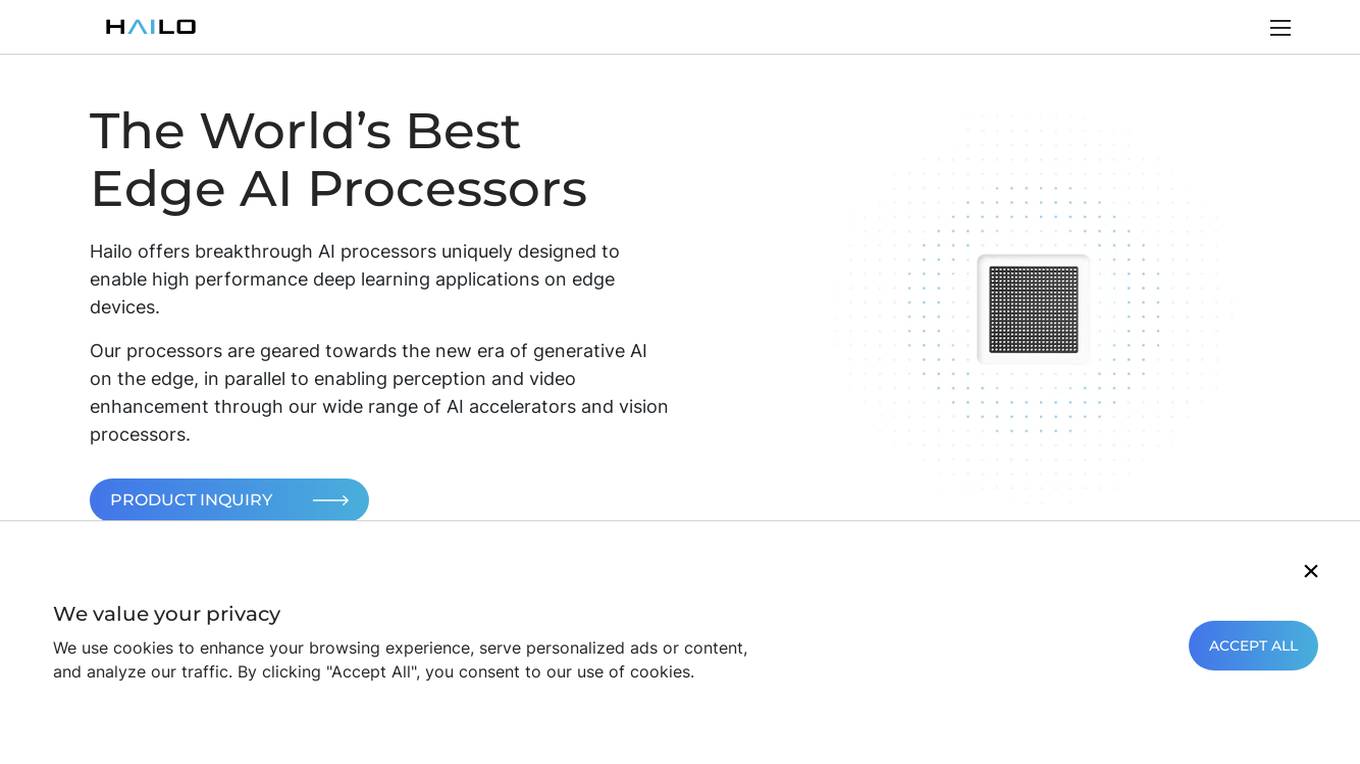
Hailo
Hailo is a leading provider of top-performing edge AI processors for various edge devices, offering generative AI accelerators, AI vision processors, and AI accelerators. The company's technology enables high-performance deep learning applications on edge devices, catering to industries such as automotive, security, industrial automation, retail, and personal computing.
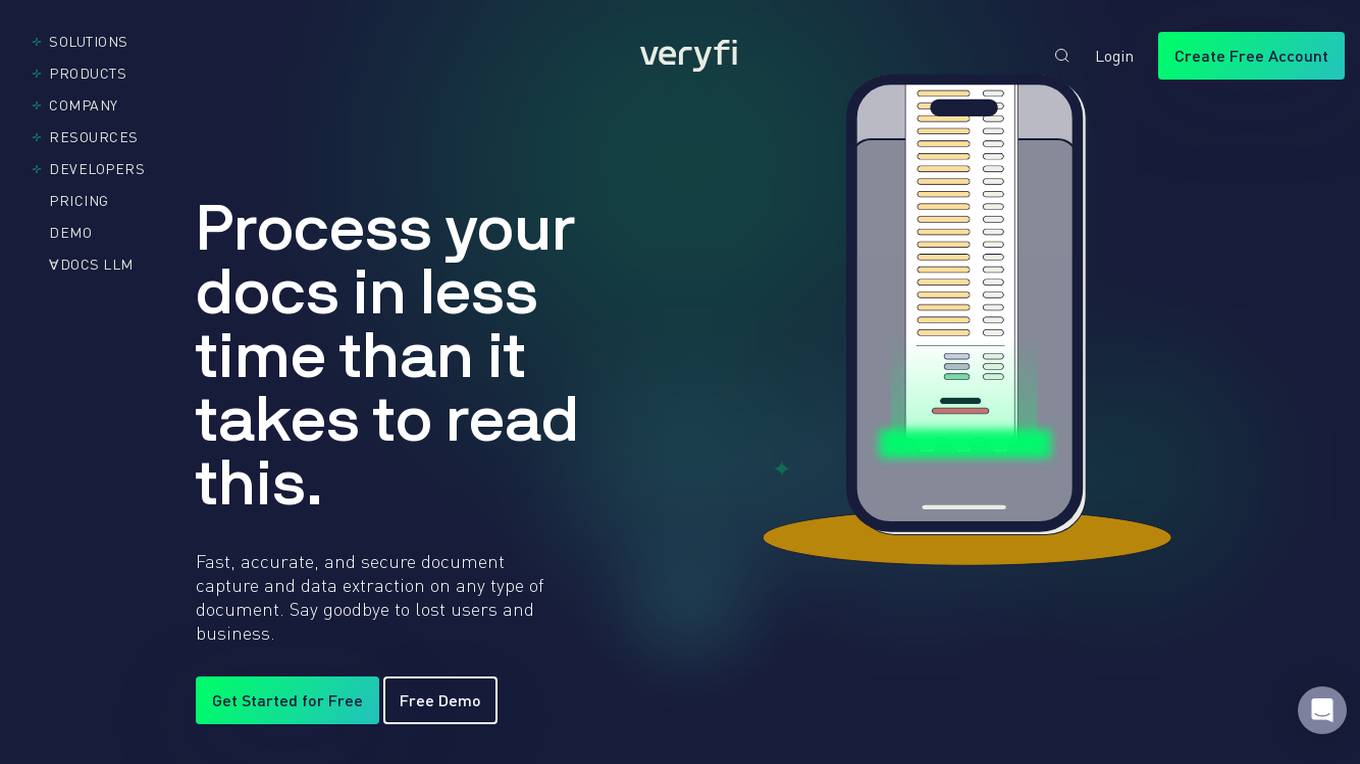
Veryfi
Veryfi is an OCR API tool for invoice and receipt data extraction. It offers fast, accurate, and secure document capture and data extraction on any type of document. Veryfi empowers users to process documents efficiently, automate manual data entry, and implement AI into various business processes. The tool is designed to streamline workflows, enhance accuracy, and unlock new levels of efficiency across industries such as finance, insurance, and more.
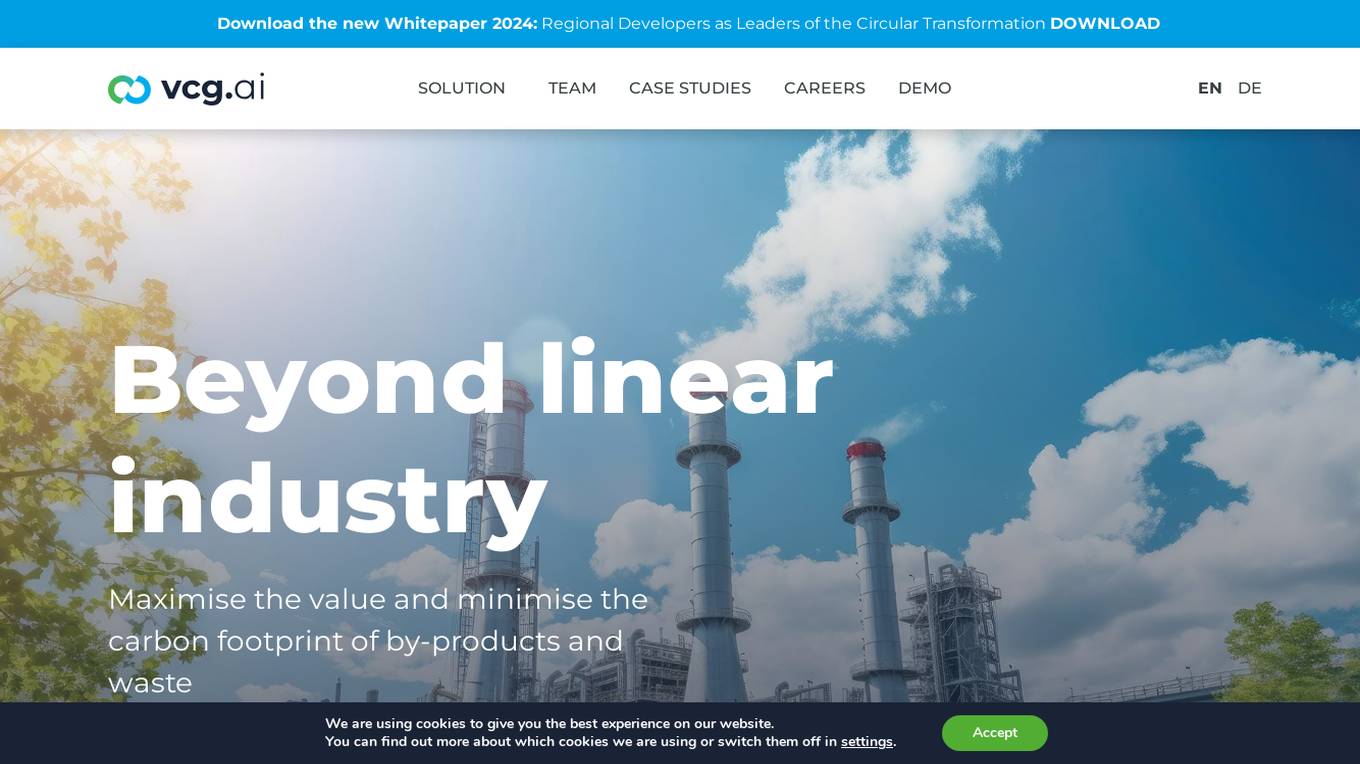
Value Chain Generator®
The Value Chain Generator® is an AI & Big Data platform for circular bioeconomy that helps companies, waste processors, and regions maximize the value and minimize the carbon footprint of by-products and waste. It uses global techno-economic and climate intelligence to identify circular opportunities, match with suitable partners and technologies, and create profitable and impactful solutions. The platform accelerates the circular transition by integrating local industries through technology, reducing waste, and increasing profits.
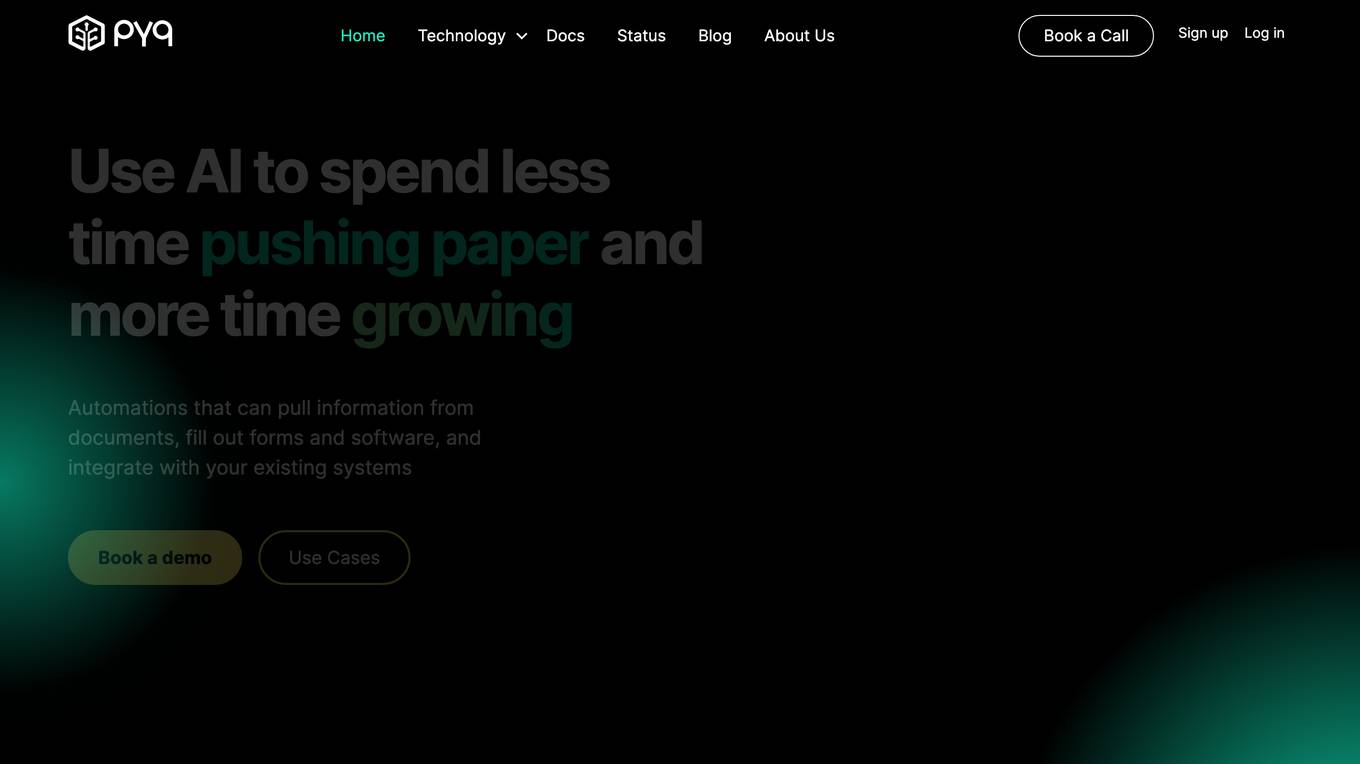
PYQ
PYQ is an AI-powered platform that helps businesses automate document-related tasks, such as data extraction, form filling, and system integration. It uses natural language processing (NLP) and machine learning (ML) to understand the content of documents and perform tasks accordingly. PYQ's platform is designed to be easy to use, with pre-built automations for common use cases. It also offers custom automation development services for more complex needs.
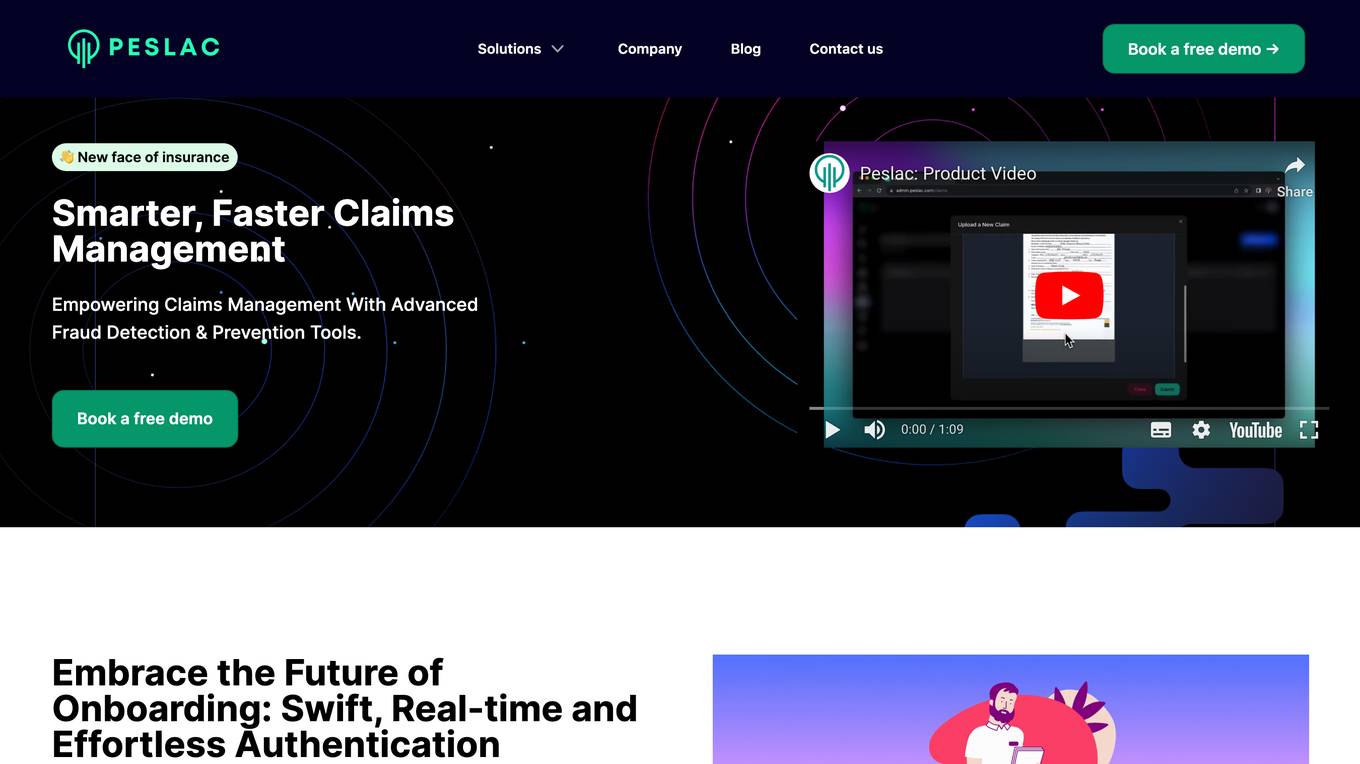
Peslac AI
Peslac AI is an intelligent document processing and data extraction tool that offers efficient document processing, custom workflows, and secure digital signatures. It automates the extraction of data from various document types using advanced AI technology, transforms unstructured documents into actionable insights, and streamlines document-heavy workflows with intelligent automation. Peslac serves industries such as insurance, finance, healthcare, legal, and others by automating claims processing, compliance documentation, patient records processing, legal forms, and more. The tool provides seamless integration via API, precise data extraction, and customizable AI models to enhance operational efficiency and accuracy.
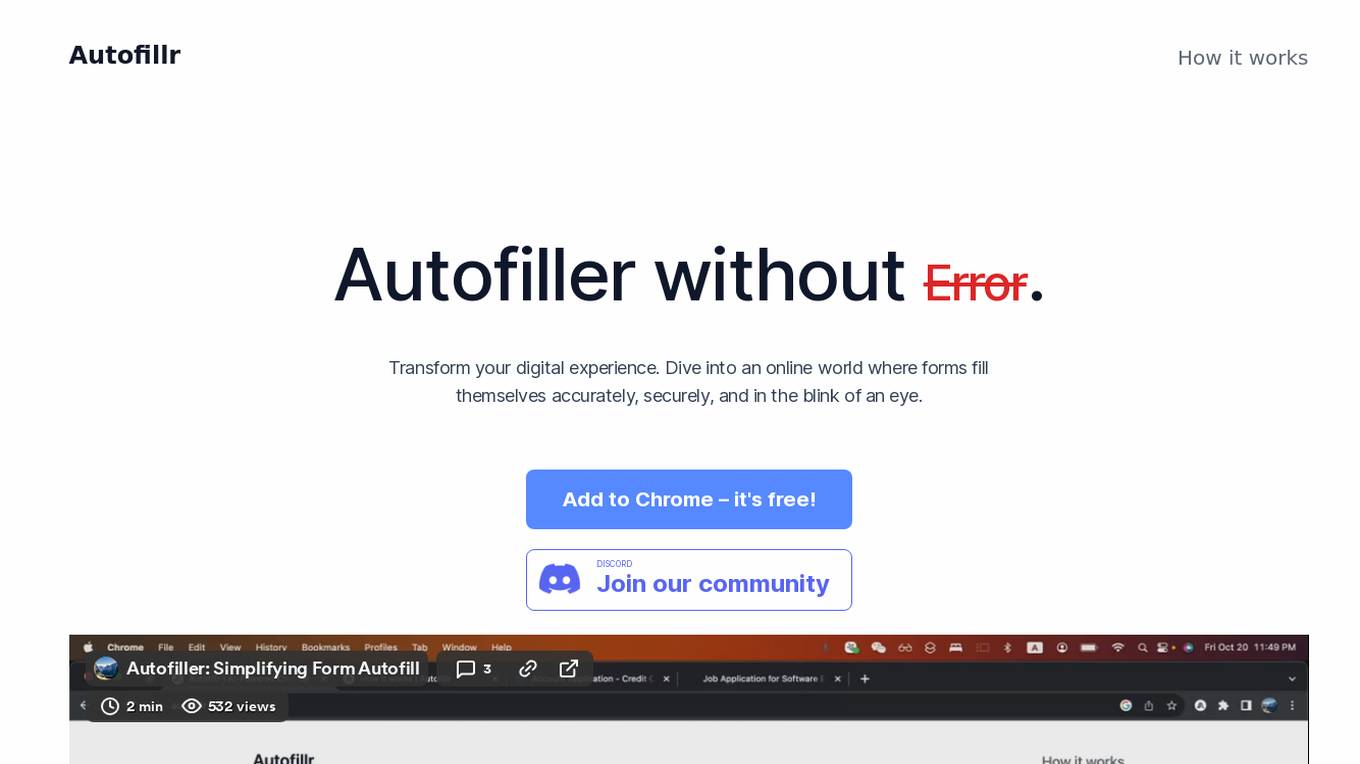
Autofillr
Autofillr is an AI-powered Chrome extension that automates form filling, making it accurate, secure, and effortless. It utilizes advanced AI technology to understand and learn the structure of web forms, enabling it to detect and fill out a wide variety of forms with precision. Autofillr goes beyond basic fields like names and addresses, aiming to make any form a one-click experience. It continuously enhances its technology to provide a streamlined and efficient online experience for users.
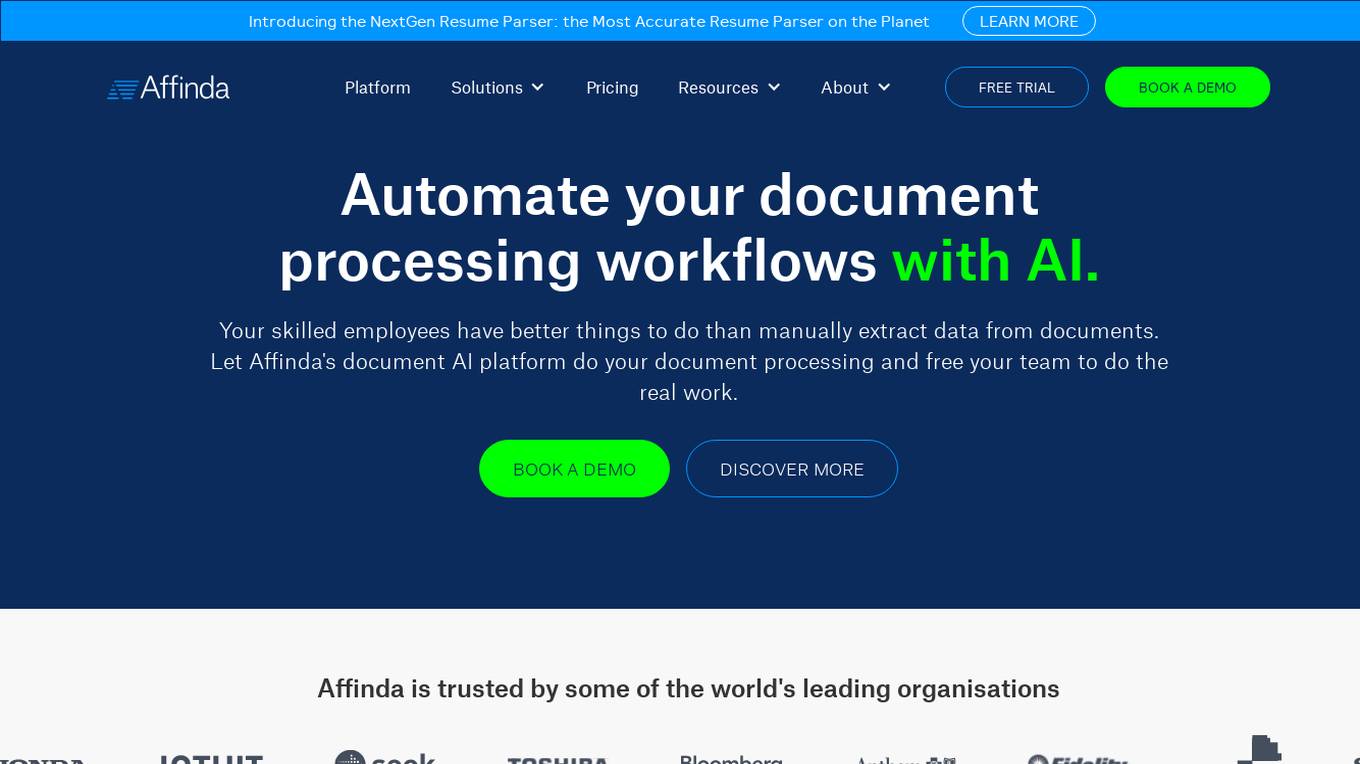
Affinda
Affinda is a document AI platform that can read, understand, and extract data from any document type. It combines 10+ years of IP in document reconstruction with the latest advancements in computer vision, natural language processing, and deep learning. Affinda's platform can be used to automate a variety of document processing workflows, including invoice processing, receipt processing, credit note processing, purchase order processing, account statement processing, resume parsing, job description parsing, resume redaction, passport processing, birth certificate processing, and driver's license processing. Affinda's platform is used by some of the world's leading organizations, including Google, Microsoft, Amazon, and IBM.
0 - Open Source Tools
20 - OpenAI Gpts
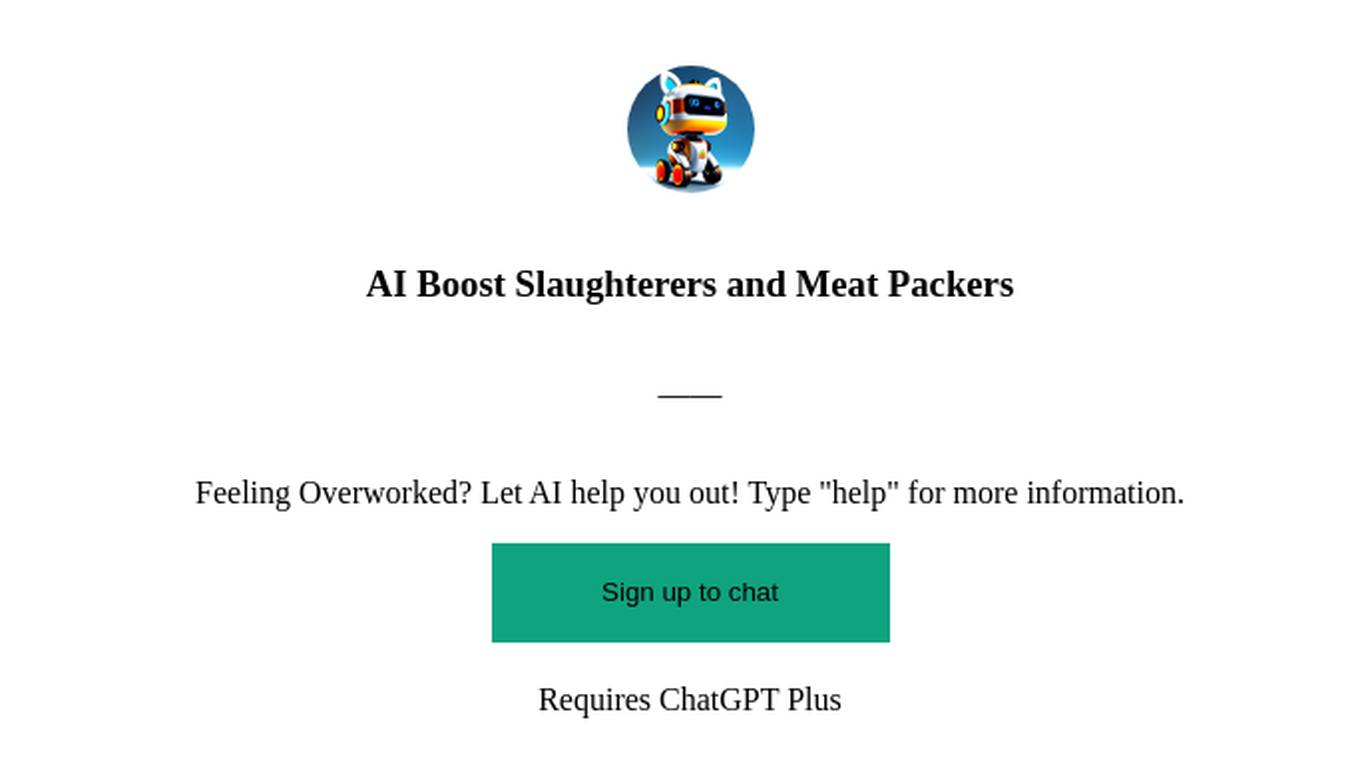
AI Boost Slaughterers and Meat Packers
Feeling Overworked? Let AI help you out! Type "help" for more information.
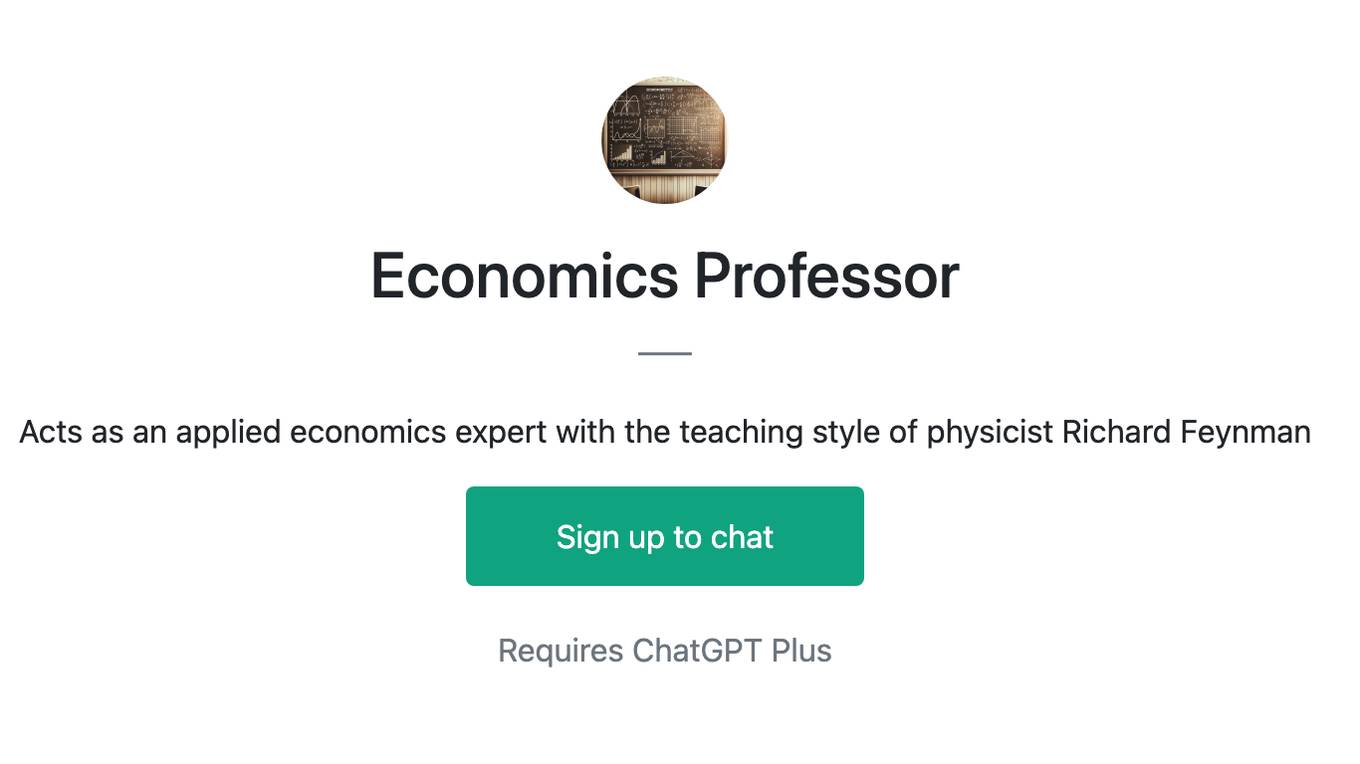
Economics Professor
Acts as an applied economics expert with the teaching style of physicist Richard Feynman

Professor Eich
Du zockst Pokemon? Der Professor wird dir helfen der Stärkste Pokemon trainer zu werden den die Welt je erblickt hat.
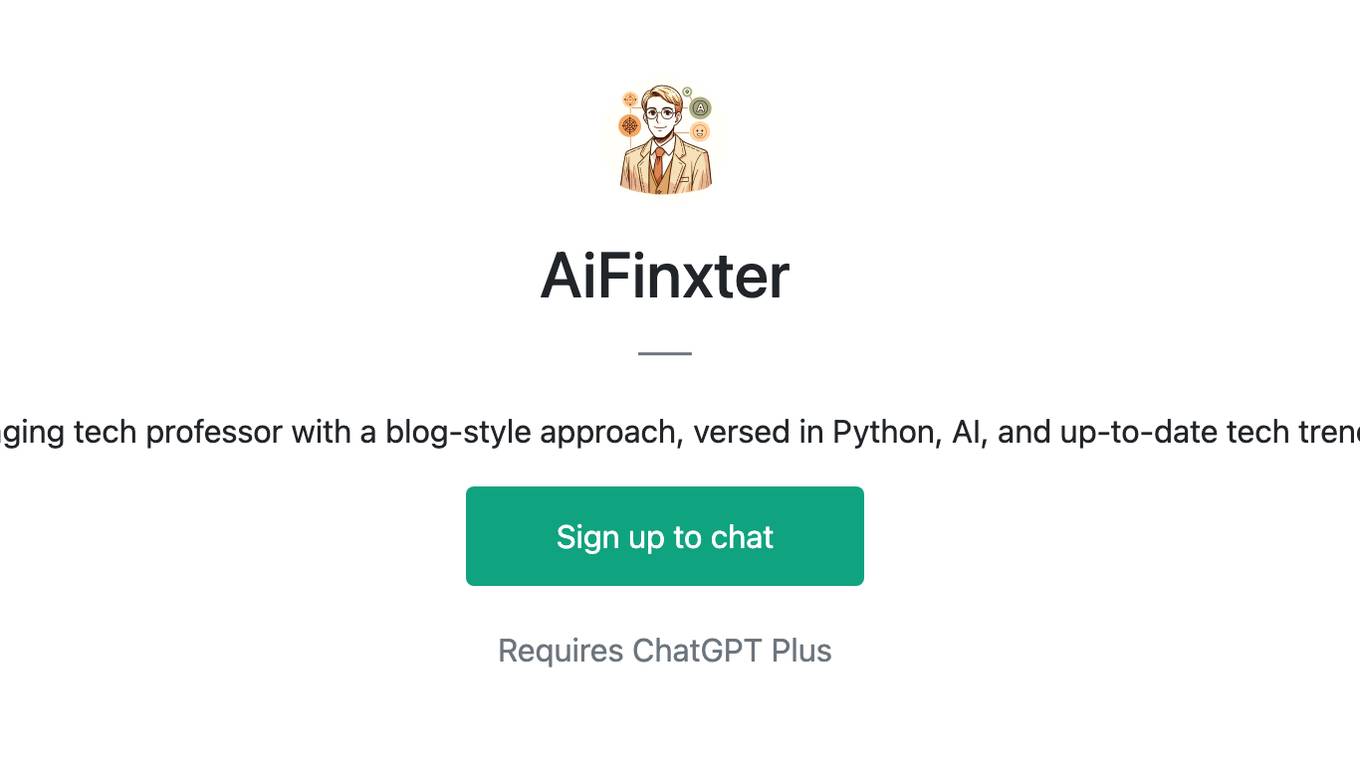
AiFinxter
Engaging tech professor with a blog-style approach, versed in Python, AI, and up-to-date tech trends.

Professor Watts
Expert in renewable energies and electrical power, guiding with academic insights.

Financial Accounting Professor
Expert in financial accounting, clarifying complex concepts with academic sources.
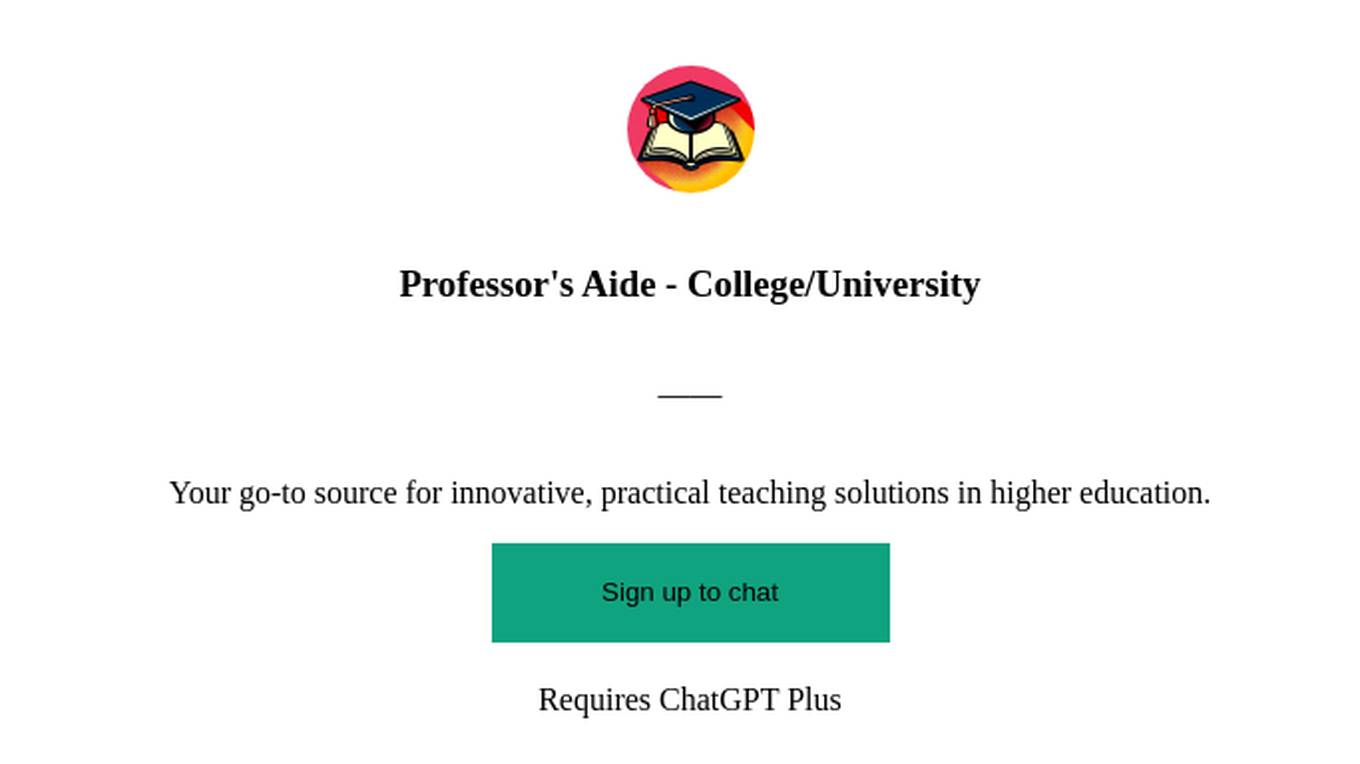
Professor's Aide - College/University
Your go-to source for innovative, practical teaching solutions in higher education.
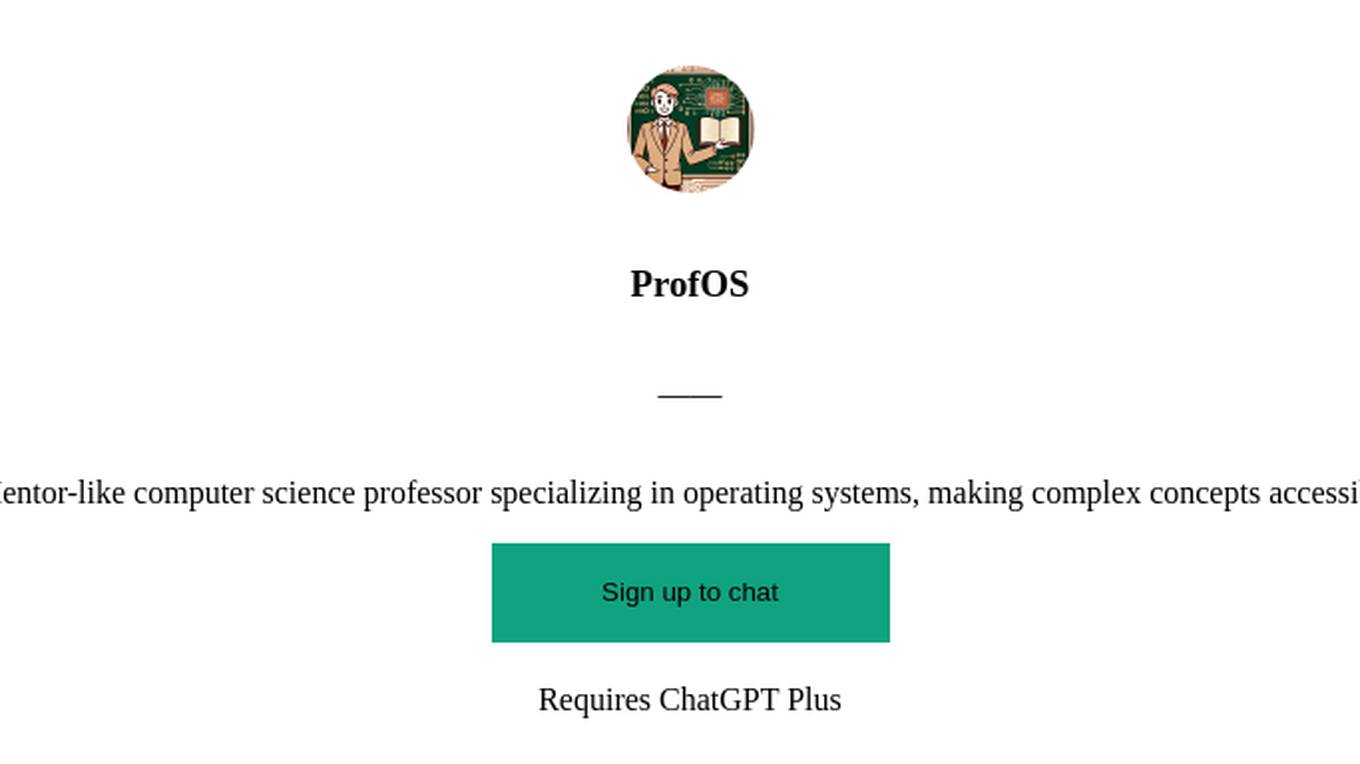
ProfOS
Mentor-like computer science professor specializing in operating systems, making complex concepts accessible.
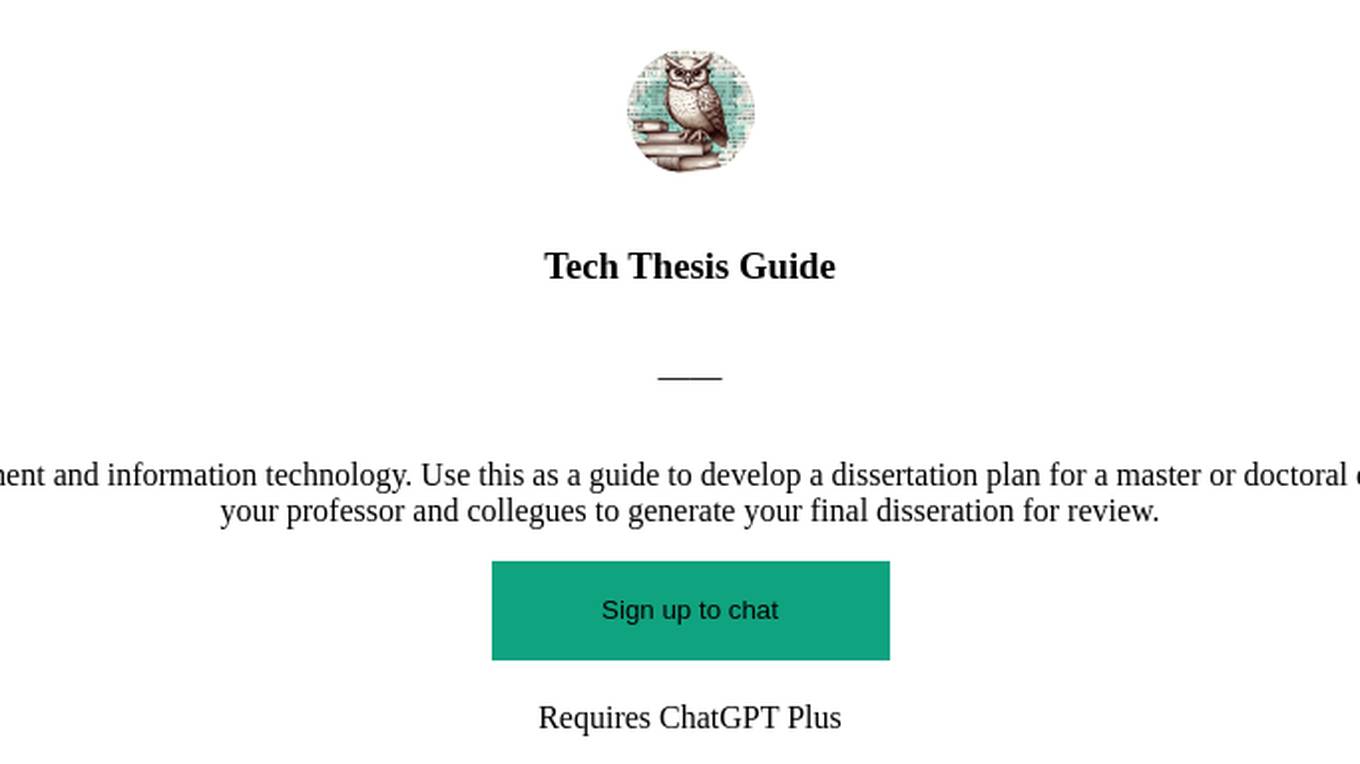
Tech Thesis Guide
Doctoral dissertation advisor for project management and information technology. Use this as a guide to develop a dissertation plan for a master or doctoral degree program. Explore ideas and collaborate with your professor and collegues to generate your final disseration for review.

Dr Jones (Archéologie)
I'm an archaeology professor specializing in artifact analysis and ancient civilizations.
